LESC at 2018 GCAS: The Land-Energy Nexus In Climate Change Mitigation
The Land-Energy Nexus in Climate Change Mitigation event is a special edition of the Low-Emissions Solutions Conference (LESC) taking place alongside the Global Climate Action Summit (GCAS) in partnership with the University of California, Berkeley Lab and the University of San Francisco in addition to other local partners. The event is brought to you with support from Enel.
The 2018 Global Climate Action Summit will bring together leaders from state and local governments and business from around the world. In an official GCAS affiliate side-event, LESC will host panels featuring distinguished speakers who will highlight the current state of technological solutions in each field and identify research, funding, and policy gaps. The agenda will include facilitated networking sessions to promote multi-stakeholder collaboration.
This year’s LESC features distinguished panelists from government, academia, business, and civil society who will address the themes of energy and land use. It will begin with a plenary session on The Land-Energy Nexus in Climate Change Mitigation, a conversation about the role of energy in low-carbon land-use scenarios and land use in low-carbon energy scenarios. The plenary aims to challenge assumptions that could lead to unworkable approaches to decarbonization, and develop frameworks for land-energy integration that are conceptually sound and implementable on the ground.
The plenary will be followed by three concurrent sessions in two breakout rooms on Decarbonizing Energy and Land Use that will dig deeper into these topics and the latest breakthroughs and challenges in technology and policy. The agenda will also include opportunities for poster sessions, information stations, and facilitated networking to promote collaboration.
Poster Session
The event will feature a poster session and pop-up discussion showing off exciting new research to help build a carbon-neutral future. Read more about the poster presentations here.
Agenda
11 Sep 8:30AMRegistration Opens
Breakfast to be provided.
11 Sep 9:00AMWelcome & Conference Objectives
Jim Williams, University of San Francisco
Rev. Paul Fitzgerald SJ, President, University of San Francisco
Guido Schmidt-Traub, UN Sustainable Development Solutions Network
Maria Mendiluce, World Business Council for Sustainable Development
Margaret Torn, University of California
11 Sep 9:13AMOpening Keynote
Valery Miftakhov, Emotorwerks, Enel
Bill McKibben, American Environmentalist
11 Sep 9:30AMPlenary Panel 1: Climate Solutions in Action: policy perspectives on the land and energy nexus
To achieve the goals of the Paris agreement and keep global warming to well below 2 ℃ emissions from energy and land-use change must be reduced rapidly and carbon dioxide will need to be removed from the atmosphere to achieve zero net emissions by mid-century globally. Many models for decarbonizing the energy system rely heavily on bioenergy for transportation fuel, dispatchable power and carbon removal. At the same time it will be essential to preserve and restore forests as a natural climate solution and to protect biodiversity. Meanwhile food production must increase to feed the world’s growing and increasingly affluent population. How do we achieve these daunting and essential goals simultaneously?
Daniel Lashof, World Resources Institute
Governor David Ige, Hawaii
Executive Commissioner Luis Carlos Romo Salazar, Sonora, Mexico
Alexandre Ywata de Carvalho, Brazilian Institute of Applied Economics Research
Claire Jahns, California Natural Resources Agency
11 Sep 10:30AMPlenary Panel 2: Where Energy and Land Use Meet: New Findings for Decarbonization Pathways
How much of Earth’s fertile land will be dedicated to bioenergy production in the standard IPCC scenarios for keeping global warming below 2º? This session presents expert analysis of land use in deep decarbonization pathways, challenging prevailing wisdom about what is possible and demonstrating the need for new approaches. Panelists will focus on what is required from the land and energy systems to keep warming below 1.5-2ºC.
Dan Sanchez and Margaret Torn, UC Berkeley and Berkeley Lab
Petr Havlik, International Institute for Applied Systems Analysis
Jim Williams, University of San Francisco
Emily McGlynn, University of California, Davis
Rob Jackson, Stanford Woods Institute
11 Sep 11:45AMNetworking Break
11 Sep 12:00PMPlenary Panel 3: New Thinking on Navigating the Land-Energy Intersection
Climate protection requires a sweeping low-carbon transformation of both energy systems and land use. Yet this transformation could also bring potential conflicts. How can bioenergy production, siting of energy facilities like wind farms, and carbon sequestration in forests and soils be conducted so as to avoid impacts on food, water, and biodiversity?
This panel will look at different frameworks and implementation mechanisms to avoid these conflicts, enhance the co-benefits of carbon-smart land use, and align stakeholder interests with the most sustainable pathways. Resource managers, decision makers, and policy advisors have a responsibility to fairly and sustainably manage our natural resources. This discussion will showcase a few ways this may be done in an evermore connected world.
Chris Weber, World Wildlife Fund
Guido Schmidt-Traub, UN Sustainable Development Solutions Network
Christa Anderson, Stanford University and World Wildlife Fund
Brian Shillinglaw, New Forests
11 Sep 12:45PMLunch Break and Keynote Discussion with John Holdren, Professor, Harvard University, Pres. Obama's Science Advisor
Lunch to be provided.
John Holdren, Professor, Harvard
11 Sep 2:00PMParallel Session L1: Implementing Natural Climate Solutions
The session will highlight the critical role of natural climate solutions (NCS) in achieving the ambitious objectives of the Paris Agreement. The session will delve into the following aspects of the implementation of NCS:
- showcasing and comparing approaches to incorporating land-based GHG reductions and carbon sequestration into GHG mitigation strategies across jurisdictions and organizations;
- exploring innovative financing mechanisms to drive scale; and
- identifying gaps and needs, including discussion of inventories, targets and policies in California and other jurisdictions.
Diane Regas, The Trust for Public Lands
Peter Walke, Vermont Agency of Natural Resources
Hammerskjoeld Simwinga, Foundation for Wildlife and Habitat Conservation
Christopher Adamo, Danone
11 Sep 2:00PMParallel Session E1: From Microgrids to Global Interconnection: The Electricity System of the Future
Decarbonizing an economy requires large amounts of low carbon electricity to replace fossil fuels. The varying scales at which that electricity is supplied – ranging from rooftop systems to large offshore wind farms and desert solar installations - has very different implications for how the electrical grid is interconnected and operated. They also change the math on such critical concerns as the cost of electricity, reliability of the power supply, energy security, and land use.
Erica Brand, The Nature Conservancy and Jim Williams, University of San Francisco
Daniele Agostini, Enel
Erica Brand, The Nature Conservancy
Mengrong Cheng, State Grid Corporation
Ren Orans, Energy and Environmental Economics Inc.
11 Sep 3:10PMNetworking Break
11 Sep 3:25PMParallel Session L2: Land for mitigation, biodiversity, food, and fiber: how can we do it all?
This session brings together scientific and practitioner leaders from the nonprofit, research, and business sectors. They will highlight:
(1) land-use solutions in action: case studies that demonstrate how integrative land use solutions can simultaneously achieve biodiversity conservation, climate change mitigation, energy security, and sustainable livelihoods (e.g. in food and fiber); and
(2) new analytical approaches that can support integrative land use practices and planning through ambitious yet reasonable goal-setting and scaling of solutions.
Grace Wu, University of California, Davis and David Saah, University of San Francisco
Virgilio Viana, Amazonas Sustainable Foundation
Justin Baker, Research Triangle Institute
Dick Cameron, The Nature Conservancy, California
Renat Heuberger, South Pole
11 Sep 3:25PMParallel Session E2: The Step After Next: Decarbonization Challenges Beyond Low Carbon Electricity
It is well known that the key near-term steps for protecting the climate include low-carbon electricity, zero-emission vehicles, and energy efficient buildings. Many states, cities, and countries are committed to making major strides in these areas by 2030. This panel of experts explores the question of what steps are needed after 2030, through to 2050 and beyond.
Chris Bataille, IDDRI
Ken Alex, California Governor’s Office of Planning and Research
Chris Bataille, IDDRI
Leon Clarke, Pacific Northwest National Laboratory
Ben Haley, Evolved Energy Research
11 Sep 4:35PMNetworking Break
11 Sep 4:50PMParallel Session L3: Solutions for Implementing Climate Smart Agriculture
This session will showcase how business, farmers, and investors have successfully worked on programmatic and project-based carbon projects, and will draw on their recommendations for NDCs across mitigation and adaptation in land use, forestry, and agriculture. Particular reference will be made to how new developments in technology across mapping, precision agriculture, modeling, monitoring, verification, and reporting can assist in scaling up land-based solutions.
Matthew Reddy, World Business Council for Sustainable Development
Hon. Ola Elvestuen, Norwegian Minister of Climate and Environment
Noora Singh, Global Sustainability, PepsiCo
Candace Laing, Nutrien
Jad Daley, American Forests
Bas Ruter, Rabobank
11 Sep 4:50PMParallel Session E3: Transforming Transport for a Clean Future
Transport contributes to 18% of global greenhouse gas emissions and growing. Transport-related energy use is set to increase 75% by 2050 unless we take serious steps to transform the current system. As climate change continues to gain importance, we urgently need a global and unified strategy to reduce emissions from transport and freight. This panel will go beyond incremental improvements to the transport system and explore what is needed for a step change in emissions from transport. The speakers will approach the system from the perspective of their own companies’ expertise and investments, covering: people and freight; long- and short-distance; and heavy- and light-duty transport. Speakers will draw on their experience of developing and deploying new solutions to identify what it will take to realize a decarbonized transport system.
Rasmus Valanko, World Business Council for Sustainable Development
Anirban Ghosh, Mahindra Group
David Schlosberg, eMotoworks
Patrick Browne, United Parcel Service
Michael Burns, Novozymes
Eric van der Schans, Port of Rotterdam
11 Sep 6:00PMCocktail Reception
Speakers
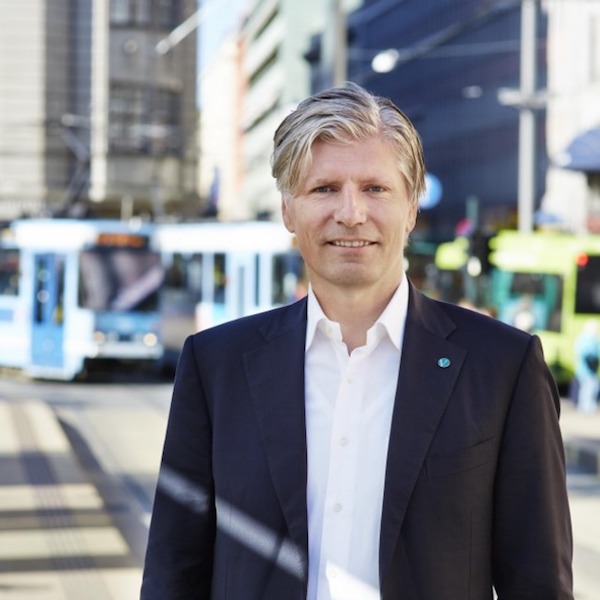 Minister of Climate and Environment, Norway
Minister of Climate and Environment, NorwayH.E. Ola Elvestuen Minister of Climate and Environment, Norway
Elvestuen holds a Bachelor’s degree from the University of Oslo, having studied Social Anthropology, Political Science and History. He started a major in History. He has undertaken the leadership training at the Norwegian Defence College. The Minister worked as a city councillor for Environment and Transportation in Oslo during 2011-2013. He was first elected to the Oslo City Council in 2003. Elvestuen headed the City Development Committee from 2003 to 2011. He was leader of the Oslo branch of the Liberal Party from 2000-2007.
At Parliament, Elvestuen has chaired the Committee on Energy and Environment since 2013. Elvestuen has been a member of the Norwegian parliamentary delegation to the Parliamentary Assembly in the Organization for Security and Cooperation in Europe (OSCE) since 2013. He has been deputy member of the parliamentary delegation for Arctic parliamentary cooperation since autumn 2017.
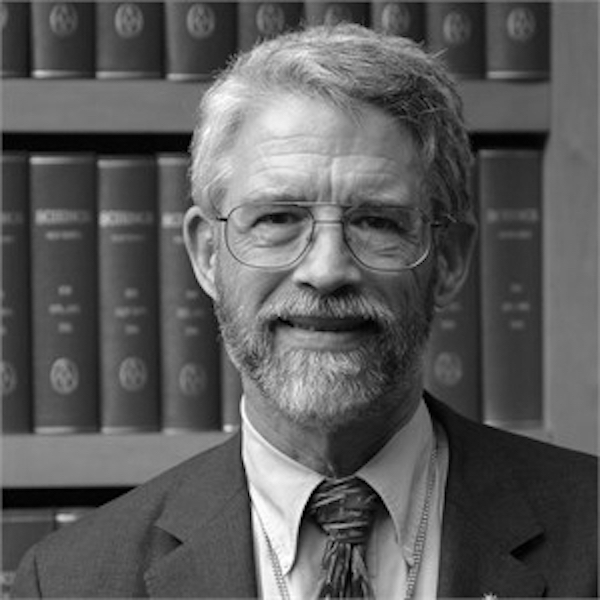 Professor, Harvard
Professor, HarvardDr. John Holdren Professor, Harvard
John P. Holdren is the Teresa and John Heinz Professor of Environmental Policy at the Kennedy School of Government; Co-Director of the Program on Science, Technology, and Public Policy in the Kennedy School’s Belfer Center for Science and International Affairs; and Professor of Environmental Science and Policy in the Department of Earth and Planetary Sciences at Harvard University. He is also Senior Advisor to the Director at the independent, nonprofit Woods Hole Research Center. From January 2009 to January 2017, he was President Obama’s Science Advisor and the Senate confirmed Director of the White House Office of Science and Technology Policy (OSTP), becoming the longest-serving Science Advisor to the President in the history of the position (dating back to World War II). His responsibilities in that role included advising the President on all S&T issues bearing on the President’s agenda (including economic competitiveness and job creation, biomedicine and public health, energy and climate change, the oceans and the Arctic, the Nation’s space program, and national and homeland security); coordinating R&D strategy and budgets across the Executive Branch departments and agencies; overseeing interagency S&T programs, including the U.S. Global Change Research Program; developing initiatives in STEM education; advancing scientific integrity and openness in government; and representing the U.S. government in interactions with the U.S. and global science and engineering communities.
Dr. Holdren earned S.B. and S.M. degrees from M.I.T. and a Ph.D. from Stanford in aerospace engineering and theoretical plasma physics. He is a member of the U.S. National Academy of Sciences, the U.S. National Academy of Engineering, the American Philosophical Society, the American Academy of Arts and Sciences, and the Council on Foreign Relations. He is also a foreign member of both the Royal Society of London and the Indian National Academy of Engineering and a former President of the American Association for the Advancement of Science. His other honors include one of the first MacArthur Prizes (1981), the Volvo International Environment Prize (1993), the Tyler Prize for Environment (2000), and the Heinz Prize for Public Policy (2001). In 1995 he gave the acceptance speech for the Nobel Peace Prize on behalf of the Pugwash Conferences on Science and World Affairs, an international organization of scientists and public figures in which he served in leadership positions from 1982 to 1997.
Prior to joining the Obama administration, Dr. Holdren was a professor in both the Kennedy School of Government and the Department of Earth and Planetary Sciences at Harvard University, as well as CEO of the Woods Hole Research Center. From 1973 to 1996, he was on the faculty of the University of California, Berkeley, where he co-founded and co-led the interdisciplinary graduate-degree program in energy and resources.
He served from 1991 to 2005 as a member of the Board of Trustees of the MacArthur Foundation and from 1994 to 2005 as Chairman of the Committee on International Security and Arms Control at the National Academy of Sciences. During the Clinton Administration, he served for both terms on the President’s Council of Advisors on Science and Technology, leading studies on nuclear materials protection, fusion-energy research, strengthening Federal investments in energy R&D, and international cooperation on energy-technology innovation.
Dr. Holdren has been married since 1966 to Dr. Cheryl E. Holdren, a biologist. They have a son, a daughter, and five grandchildren. John and Cheryl currently live on Cape Cod.
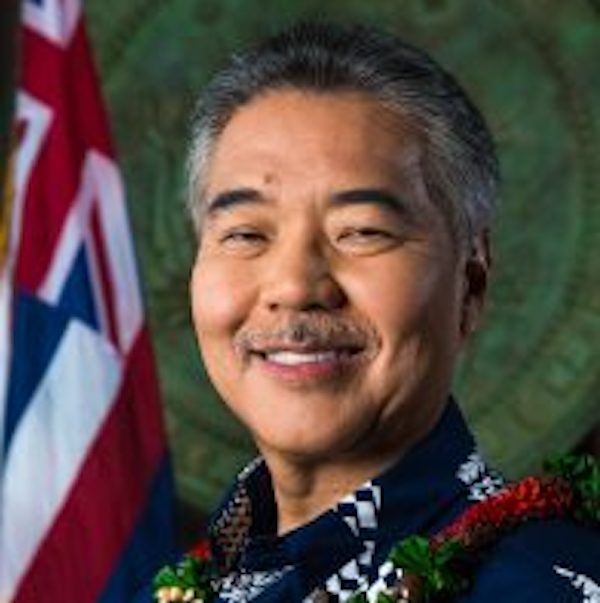 Governor, Hawaii
Governor, HawaiiGovernor David Ige Governor, Hawaii
Governor Ige is focused on improving the lives of Hawaiʻi’s people and making the islands a place future generations choose to call home. He is increasing affordable housing, reducing homelessness, moving toward the state’s 100% renewable energy goal, and remodeling public education to prepare students for the innovation economy of the 21st century. Under his leadership, the state has aggressively moved to ensure financial sustainability and enable future growth. He believes that we can achieve our shared goals because we have always been better together than alone.
Governor Ige was born and raised in Pearl City and is the fifth of six sons of Tokio and Tsurue Ige. He is the first governor in the United States of America of Okinawan descent. He attended public schools in Pearl City and earned a Bachelor of Science degree in Electrical Engineering at the University of Hawaiʻi at Mānoa, where he met his wife, Dawn Amano-Ige.
After college, while working for GTE Hawaiian Tel, a career that spanned 18 years, Governor Ige earned a master’s of Business Administration degree in Decisions Sciences at UH Mānoa. In 1986, Hawaii Business magazine named him one of the university’s Top 10 MBA students. He went on to become a successful electrical engineer and project manager with a 34-year career devoted to information technology, telecommunications, networks, and responsible public policy.
Governor Ige began his political career in 1985 after being appointed by then Governor George Ariyoshi to fill a vacant seat in the Hawai‘i House of Representatives. In 1994, then Representative Ige was elected to the Hawai‘i Senate where he represented his home district of ‘Aiea / Pearl City until 2014.
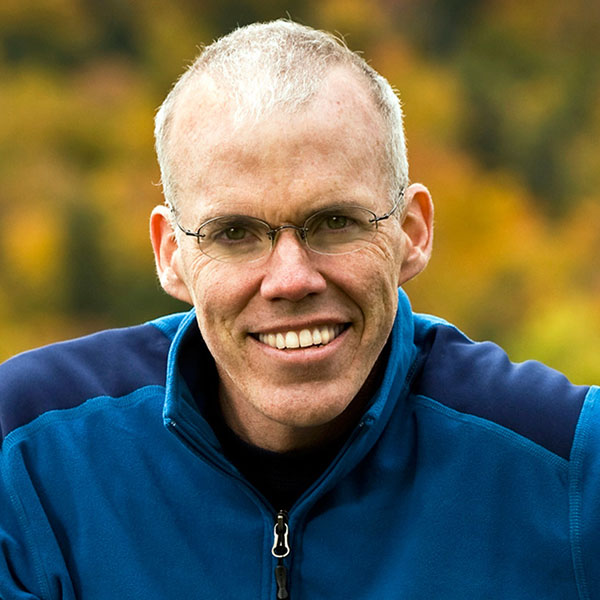 American Environmentalist
American EnvironmentalistMr. Bill McKibben American Environmentalist
Bill McKibben is an author and environmentalist who in 2014 was awarded the Right Livelihood Prize, sometimes called the ‘alternative Nobel.’ His 1989 book The End of Nature is regarded as the first book for a general audience about climate change, and has appeared in 24 languages; he’s gone on to write a dozen more books. He is a founder of 350.org, the first planet-wide, grassroots climate change movement, which has organized twenty thousand rallies around the world in every country save North Korea, spearheaded the resistance to the Keystone Pipeline, and launched the fast-growing fossil fuel divestment movement.
The Schumann Distinguished Scholar in Environmental Studies at Middlebury College and a fellow of the American Academy of Arts and Sciences, he was the 2013 winner of the Gandhi Prize and the Thomas Merton Prize, and holds honorary degrees from 18 colleges and universities. Foreign Policy named him to their inaugural list of the world’s 100 most important global thinkers, and the Boston Globe said he was “probably America’s most important environmentalist.”
A former staff writer for the New Yorker, he writes frequently for a wide variety of publications around the world, including the New York Review of Books, National Geographic, and Rolling Stone. He lives in the mountains above Lake Champlain with his wife, the writer Sue Halpern, where he spends as much time as possible outdoors . In 2014, biologists honored him by naming a new species of woodland gnat – Megophthalmidia mckibbeni – in his honor.
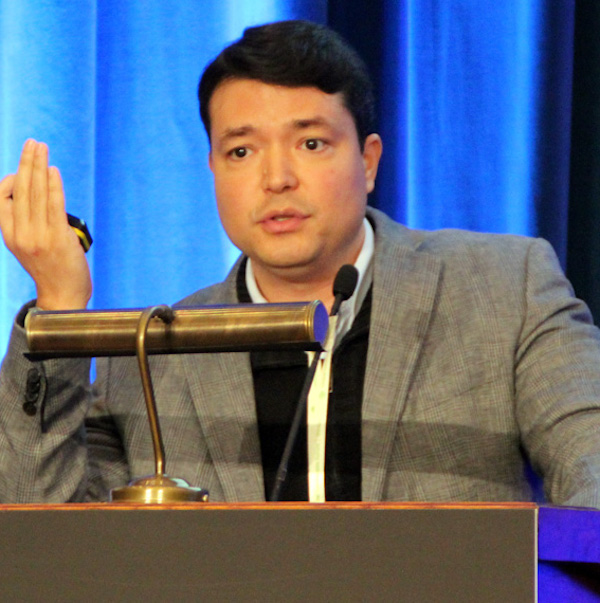 Director of Regional, Urban, and Environmental Studies and Policies, Brazilian Institute of Applied Economics Research
Director of Regional, Urban, and Environmental Studies and Policies, Brazilian Institute of Applied Economics ResearchDr. Alexandre Ywata de Carvalho Director of Regional, Urban, and Environmental Studies and Policies, Brazilian Institute of Applied Economics Research
Alexandre Ywata de Carvalho is the Director for Regional, Urban and Environmental Policies and Studies, and Executive Vice-President, at the Institute for Applied Economics Research (Ipea). He holds a Bachelor’s Degree in Mechanical-Aeronautic Engineering from the Air Force Institute of Technology and a PhD in Statistics from Northwestern University. He worked as an Assistant Professor of Statistics at the University of British Columbia, and as Professor of Econometrics at the University of Brasilia. Nowadays he teaches Econometrics for the master’s program in Economics at Ipea. His areas of interest are public policy evaluation, infrastructure regulation and environmental policies.
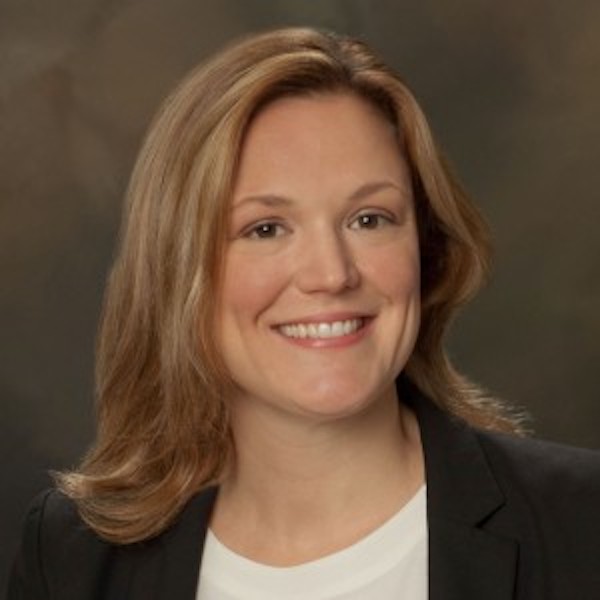 Assistant Secretary, California Natural Resources Agency
Assistant Secretary, California Natural Resources AgencyMs. Claire Jahns Assistant Secretary, California Natural Resources Agency
Claire Jahns is Assistant Secretary for Natural Resources Climate Issues at the California Natural Resources Agency. Her portfolio includes land protection and natural resource management within California’s climate change policy context, which encompasses the Climate Change Scoping Plan, the Forest Carbon Plan, bioenergy, greenhouse gas emission and carbon sequestration accounting and quantification, and climate change adaptation. Prior to joining the Agency, she served as a project director at The Nature Conservancy, where her work focused on developing solutions at the intersection of agriculture and biodiversity conservation in California and the American West. Claire was an economist and business development associate at the Chicago Climate Exchange from the Exchange’s opening in 2003 to 2007. She holds a Masters of Environmental Management and an MBA from Yale University, and a BA from Oberlin College.
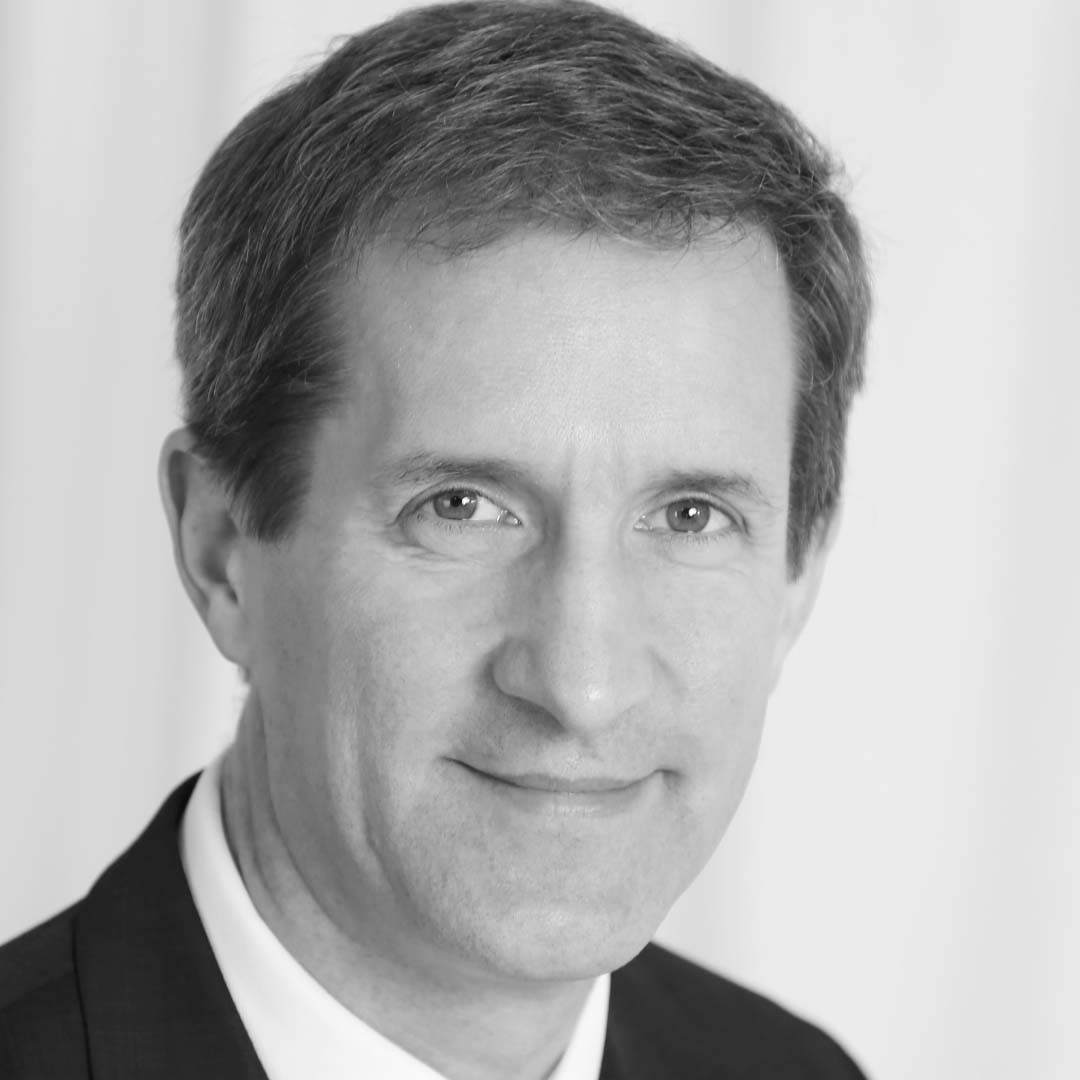 Executive Director, UN Sustainable Development Solutions Network (SDSN)
Executive Director, UN Sustainable Development Solutions Network (SDSN)Dr. Guido Schmidt-Traub Executive Director, UN Sustainable Development Solutions Network (SDSN)
Dr. Guido Schmidt-Traub is Executive Director of the UN Sustainable Development Solutions Network, which operates under the auspices of the UN Secretary-General to support the implementation of the Sustainable Development Goals and the Paris Climate Agreement. Guido leads the SDSN’s policy work, including on long-term pathways for sustainable land-use and food systems, financing for development, and the SDG Index and Dashboards. He serves on the Governing Council of Future Earth and other advisory bodies.
Previously, Guido was CEO of Paris-based CDC Climat Asset Management, an investment company regulated by the French financial markets regulator; climate change advisor to the Africa Progress Panel secretariat; and Director and Partner at South Pole Carbon Asset Management in Zurich. He managed the MDG Support Team at UNDP (2006-2008) and served as Policy Advisor and then as Associate Director of the UN Millennium Project in New York, which was tasked with developing an action plan to achieve the Millennium Development Goals and advised countries around the world on their implementation.
Earlier Guido was Partner at IndexIT Scandinavia, a private equity fund for early-stage technology companies, and consultant at McKinsey & Company in Germany.
Guido holds a Ph.D. in Economics from Wageningen University & Research, an M.Phil. in Economics from Oxford University (Rhodes Scholar), and a Masters in physical chemistry from the Free University Berlin.
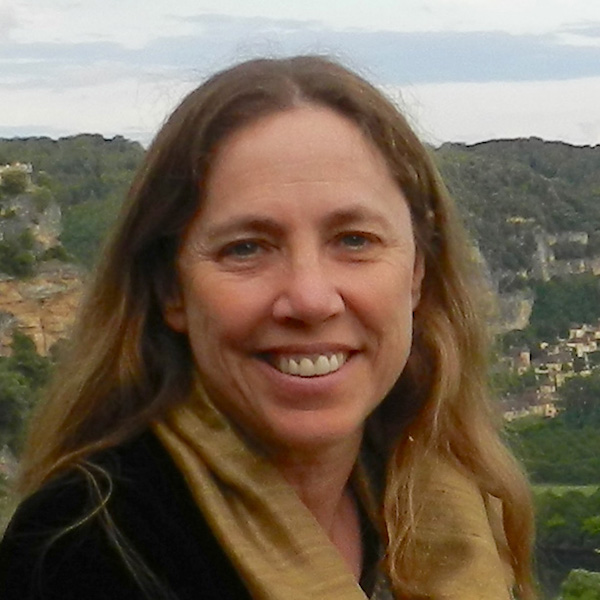 Senior Scientist and Head of Biosphere-Atmosphere Program, Berkeley Lab and UC Berkeley
Senior Scientist and Head of Biosphere-Atmosphere Program, Berkeley Lab and UC BerkeleyDr. Margaret Torn Senior Scientist and Head of Biosphere-Atmosphere Program, Berkeley Lab and UC Berkeley
Margaret S. Torn is Senior Advisor in the Climate and Ecosystem Sciences Division (CESD) and lead of the Biosphere-Atmosphere Interactions Program Domain, which includes the Atmospheric Systems Research and Terrestrial Ecosystems Science programs. Margaret co-led the former Climate and Carbon Sciences Program Area in the old Earth Sciences Division. She is lead PI for three large DOE-supported projects: AmeriFlux Management Project, Belowground Carbon Cycling Scientific Focus Area, and Land-Atmosphere Interactions, and is co-PI for the Next Generation Ecosystem Experiment in the Arctic. At U.C. Berkeley, Margaret is an Adjunct Professor in the Energy and Resources Group, where she has taught classes on climate change impacts and adaptation, and a seminar on food systems. In 2003 she received the Presidential Early Career Award as one of the country’s top young scientists and was recently awarded an honorary doctorate by the faculty of Mathematics and Natural Sciences at the University of Zurich.
Margaret is an ecologist and biogeochemist who studies the natural carbon cycle and human impacts on the carbon cycle through land use, energy use, and climate change. Her research uses field experiments, isotopic tracers (14C, 13C), laboratory analysis, and mathematical models. She has published more than 100 peer-reviewed articles on topics ranging from the basic mechanisms of soil carbon cycling and ecosystem-climate feedbacks, to ecological aspects of bioenergy production, to strategies for climate-change mitigation.
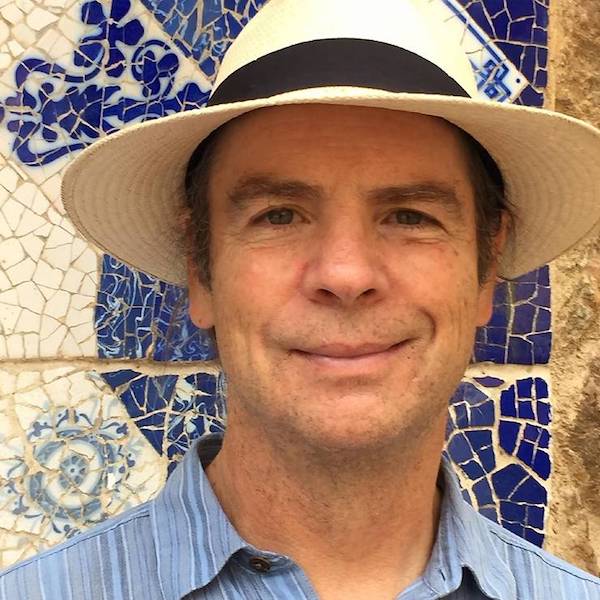 Professor, University of San Francisco
Professor, University of San FranciscoDr. Jim Williams Professor, University of San Francisco
Professor Jim Williams is a global thought leader in the area of low-carbon energy systems. At USF his focus is on developing a new generation of energy professionals with the skills and knowledge needed to have rewarding careers in sustainably meeting society’s energy needs.
Prof. Williams was formerly chief scientist at Energy and Environmental Economics (E3), where he consulted on many aspects of energy technology, planning, and regulation for government, utility, and industry clients. His experience ranges from renewable integration to electric vehicles, retail rate-making to wholesale markets, environmental siting to the water-energy nexus.
Prof. Williams led E3’s analysis of greenhouse gas emission reduction strategies for California’s government agencies, which helped to shape the state’s climate and energy policies. He directs the Deep Decarbonization Pathways Project (DDPP), a consortium of research teams from the 16 highest-emitting countries, whose long-term blueprints for a low-carbon transition influenced the Paris Agreement.
Prof. Williams formerly taught at the Monterey Institute of International Studies, where his research interests included the technical and institutional challenges of decarbonizing China’s power sector.
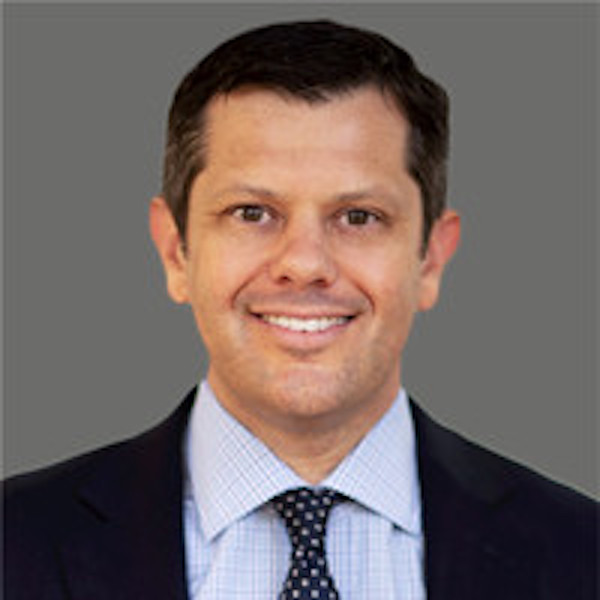 Vice President Federal and Industry Affairs, Danone
Vice President Federal and Industry Affairs, DanoneMr. Christopher Adamo Vice President Federal and Industry Affairs, Danone
Chris Adamo is Vice President at Danone North America for federal and industry affairs, assisting the world’s largest B Corp with strengthening the role of business in driving social and environmental good for all. Prior to this work, Chris spent over a decade at the highest levels of the federal government helping find solutions for various agricultural and environmental problems.
Most recently, Chris served as the chief of staff for President Obama’s White House Council on Environmental Quality from 2015 until the end of the Administration in 2017 where he helped lead the President’s climate change and conservation agenda.
Before his tenure with the Council on Environmental Quality, Chris spent 10 years in the U.S. Senate as an advisor to various U.S. Senators, both Democrats and Republicans. He led the U.S. Senate Committee on Agriculture, Nutrition, and Forestry as its staff director and oversaw various issues related to agriculture, environment, and nutrition.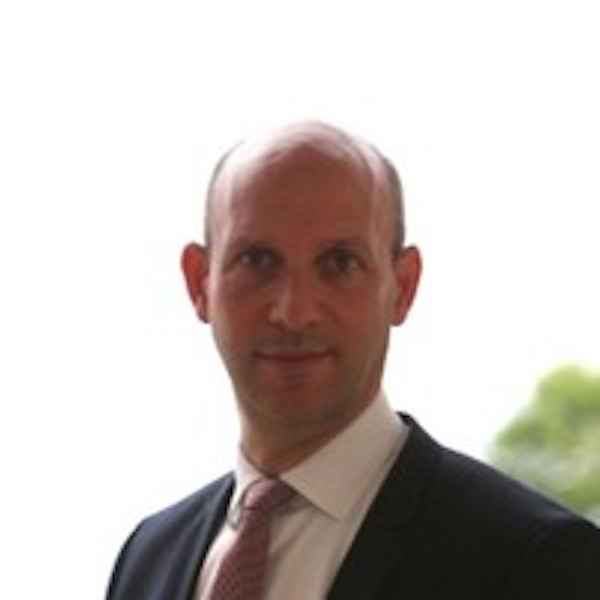 Head of Low Carbon and European Energy Policies, Enel
Head of Low Carbon and European Energy Policies, EnelMr. Daniele Maria Agostini Head of Low Carbon and European Energy Policies, Enel
Daniel Agostini is the head of Low Carbon and European Energy Policies within the
European Affairs Department of Enel Holding. He is responsible for policy analysis
and corporate position development on European Energy Policies and on Low
Carbon Policies across the over 30 countries in which the Enel Group operates. In
such role he is in charge of monitoring and assessing policy developments in the
areas of climate change, renewable energy and energy efficiency. Mr. Agostini is
member of the Board of IETA, the International Emission Trading Association. He
currently co-chairs the IETA EU-Emission Trading Scheme (EU-ETS) Working Group
as well as the Eurelectric Energy Efficiency Working Group.Prior to joining Enel, Mr. Agostini led the environmental advisory group of a global management consulting company in Italy. He advised governments and private sector operators on environmental management, emission trading, renewable
energies and energy efficiency. Previously, Mr Agostini worked as an
environmental engineer for an international engineering consulting company
based in Boston (USA), with projects in North and South America.Mr. Agostini holds a Bachelor of Science in Environmental Engineering with a
minor in economics from the Massachusetts Institute of Technology (MIT, USA).
He also holds a Master of Science in Water Resources Engineering from the
University of California at Berkeley (USA) and a Master of Science in
Environmental and Resources Economics from University College London (UCL,
UK).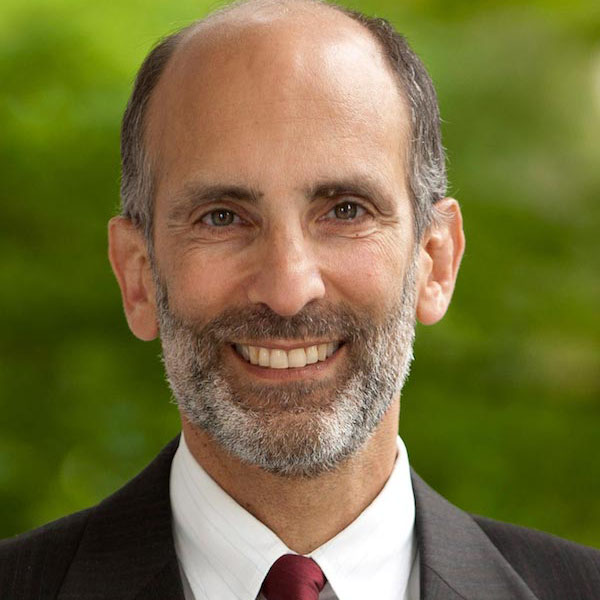 Director, California Governor’s Office of Planning and Research
Director, California Governor’s Office of Planning and ResearchDr. Ken Alex Director, California Governor’s Office of Planning and Research
Ken is the Director of the Governor’s Office of Planning and Research, and serves as Senior Policy Advisor to Governor Jerry Brown and the Chair of the Strategic Growth Council. As the longest tenured OPR Director, Ken has led a broad effort to modernize land use planning through greater transparency; easier access and local application through mapping tools, templates, and streamlined permits; reduced barriers to in-fill development; promotion of transit oriented development; protection of agricultural land and open space; recognition of water constraints; and updated general plan and CEQA guidelines. Ken is also the architect of the Under2 Coalition, an organization of over 200 sub-national jurisdictions representing 40% of world GDP, leading world action on climate change.
Before joining the Governor’s Office, Ken was the Senior Assistant Attorney General heading the environment section of the California Attorney General’s Office, and the co-head of the Office’s global warming unit. From 2000 to 2006, Ken led the California Attorney General’s energy task force, investigating price and supply issues related to California’s energy crisis. California Lawyer named Ken an “Attorney of the Year” in 2004 for his work in energy law, and he received the ABA award for Distinguished Achievement in Environmental Law and Policy in 2007 for global warming work.
Ken is a graduate of Harvard Law School and holds a B.A. in political theory from the University of California at Santa Cruz.
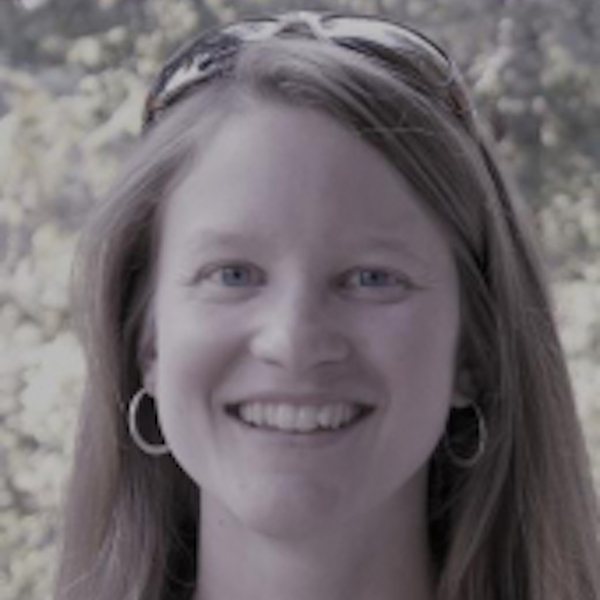 Fellow with World Wildlife Federation, Stanford University
Fellow with World Wildlife Federation, Stanford UniversityDr. Christa Anderson Fellow with World Wildlife Federation, Stanford University
Christa’s research focuses on deforestation and land use change in the Peruvian Amazon. She uses remote sensing and land change science to better understand and predict patterns of deforestation. She also conducts research on climate policy in California.
Prior to Stanford, Christa worked as a Climate Change Specialist for the US Forest Service, where she worked primarily on forests and climate change in Africa. Before her work at the Forest Service, Christa worked on climate change mitigation and adaptation at the World Bank.
Christa has a Masters of Environmental Science from the Yale School of Forestry and Environmental Studies; her research focused on ecosystems dynamics in an East Africa Savannah ecosystem. She holds a BA in history and environmental studies from Yale University.
 Senior Economist, Research Triangle Institute (RTI)
Senior Economist, Research Triangle Institute (RTI)Dr. Justin Baker Senior Economist, Research Triangle Institute (RTI)
Dr. Justin Baker is a natural resource and environmental economist who leads RTI efforts in bioenergy expansion, land use, climate change mitigation, and water resource management.
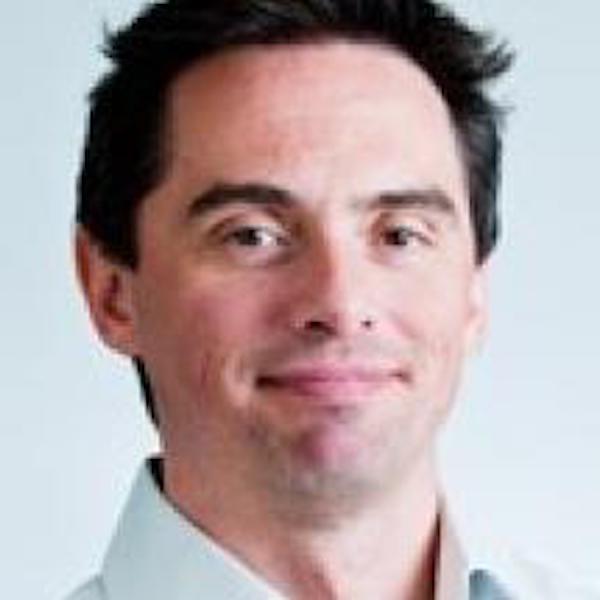 Researcher, Institute for Sustainable Development and International Relations (IDDRI)
Researcher, Institute for Sustainable Development and International Relations (IDDRI)Dr. Chris Bataille Researcher, Institute for Sustainable Development and International Relations (IDDRI)
Chris Bataille has been involved in energy and climate policy analysis for more than 20 years as a researcher, energy systems and economic modeller, analyst, writer, project manager, and executive. Chris is currently an Associate Researcher at the Institute for Sustainable Development and International Relations in Paris, and conducts freelance energy and climate policy consulting. Chris recently completed a 1.5 year project as lead editor of a special issue of Climate Policy on the Deep Decarbonization Pathways Project (DDPP). He also helped manage the global DDPP and was co-author of the Canadian chapter. He is currently lead of the DDPP Heavy Industry Deep Decarbonization Project, which recently published a review paper in the Journal of Cleaner Production. He is an Adjunct Professor at Simon Fraser University in Vancouver.
From 2011-‘14 Chris was a founding managing partner of Navius Research Inc., a Vancouver based energy policy consulting firm. Prior to helping found Navius in 2011, he was executive director of MK Jaccard & Associates Inc. (another energy policy consulting firm) for 5 years. He has managed many projects, including several large national climate change and energy policy studies for Natural Resources Canada, the Canadian National Roundtable of the Environment and the Economy, Environment Canada, the Pembina Institute and the David Suzuki Foundation, the Ontario Ministry of the Environment, and the Ontario Power Authority. In addition to his consulting practise, Chris has published peer reviewed articles in the Journal of Cleaner Production, Energy Economics, The Energy Journal and Climate Policy, edited a special edition of the Energy Journal on hybrid energy economy modelling, and has written a number of public policy publications, including “Pricing Greenhouse Gas Emissions: The impact on Canada’s competitiveness” for the C.D. Howe Institute.
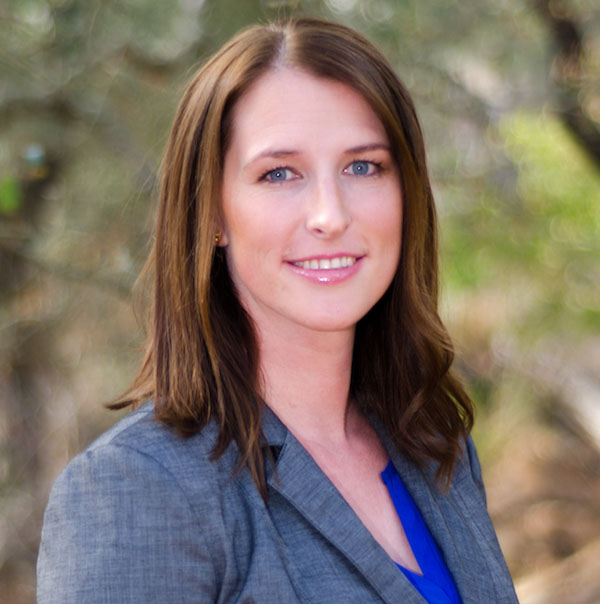 California Energy Program Director, The Nature Conservancy
California Energy Program Director, The Nature ConservancyMs. Erica Brand California Energy Program Director, The Nature Conservancy
Erica Brand serves as Director of the California Energy Program at The Nature Conservancy. In her role, she leads a team that works to integrate protection of nature into planning for California’s clean energy future. Before joining The Nature Conservancy, she served as a Senior Environmental Policy Specialist at Pacific Gas & Electric Company and has 15 years of experience in the energy and environmental sector. Erica holds a Master of Science degree in Environmental Management from the University of San Francisco, and a Bachelor of Science degree in Biological Sciences from Cal Poly, San Luis Obispo.
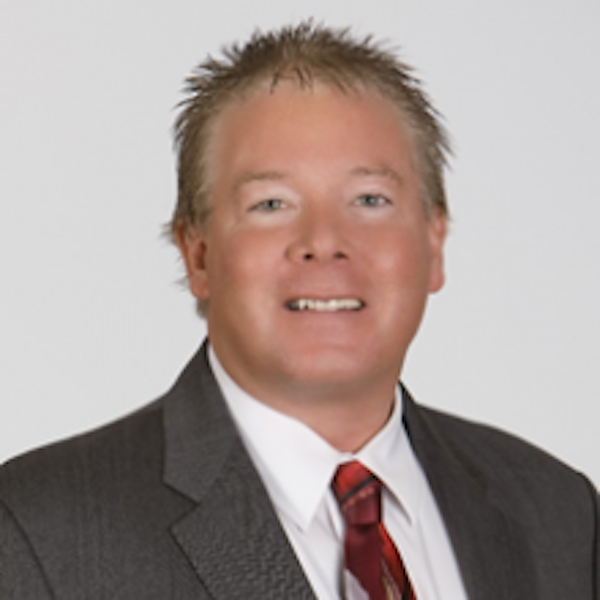 Director, Global Sustainability, UPS
Director, Global Sustainability, UPSMr. Patrick Browne Director, Global Sustainability, UPS
Patrick Browne serves as Director of Global Sustainability for UPS, a worldwide leader in supply chain and logistics solutions. Working with cross-functional teams and executive leadership, Patrick leads strategies and initiatives to advance the company’s long-term sustainability vision.
Patrick has managed UPS’s sustainability programs since 2008, including overseeing the company’s global GHG inventory and reporting, and has held various assignments in Plant Engineering and Environmental Affairs during his 28-year tenure with UPS.
Patrick is an active participant in organizations focused on advancing sustainable business practices around the world, including BSR’s Future of Fuels working group and Global Reporting Initiative’s GOLD Community.
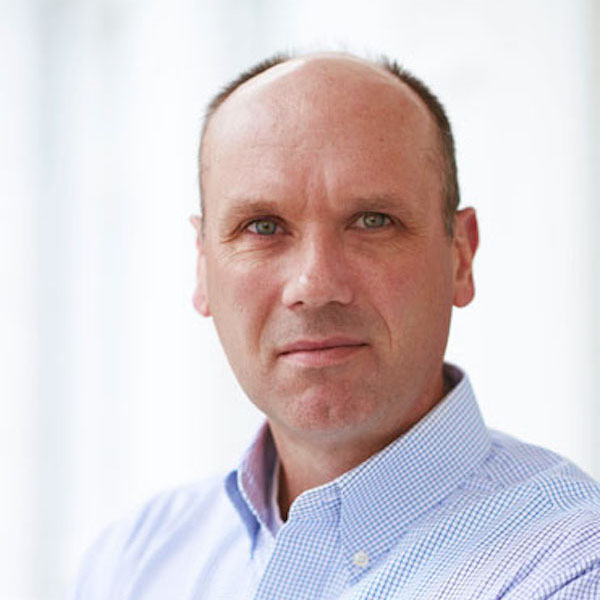 Head of Biorefining Business Development, Novozymes
Head of Biorefining Business Development, NovozymesMr. Michael Burns Head of Biorefining Business Development, Novozymes
Michael Burns is the Head of Biorefinery Business Development for Novozymes, focused on developing business opportunities utilizing Novozymes biotechnology in the fuel and chemical industries. Prior to joining Novozymes in 2015, he was Director of Commercial and Business Development of BP’s Advanced Bio Products division. He joined BP in 2010 and had several roles focused on Project, Business, and Commercial Development. He has held several other roles in the energy industry in his 20-year career focused on Project Finance, Project Development, Business and Commercial Development, Mergers and Acquisitions, and Corporate Strategy and Analysis. He has also worked for R.W. Beck, Celunol, Verenium, and Vercipia. He holds an MBA from Western New England University and Bachelor of Science in Business Administration from Bryant University.
Novozymes in the world leader in biological solutions. Together with customers, partners and the global community, Novozymes improves industrial performance while preserving the planet’s resources and helping to build better lives.
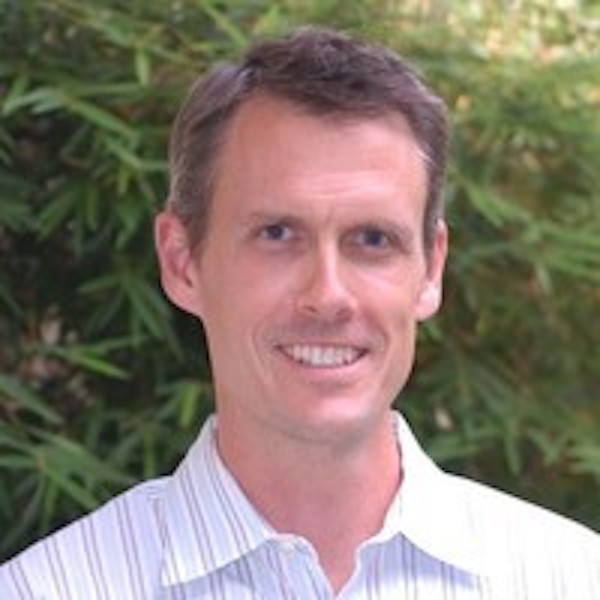 Director of Science for Land Programs, The Nature Conservancy
Director of Science for Land Programs, The Nature ConservancyMr. Dick Cameron Director of Science for Land Programs, The Nature Conservancy
Dick leads the Land Programs science team in The Nature Conservancy’s California Chapter. His work is focused on creating the tools and evidence to integrate conservation into land use and climate policies. Across a variety of California landscapes, his research assesses opportunities to align land conservation and other societal goals, such as alternative energy development, transportation infrastructure, food production and climate stabilization. Currently his priorities are focused on two climate-related conservation questions: how can ecological land management contribute to climate mitigation goals, and how to design connected networks of land that will help species adapt to climate change?
Before the Conservancy, Dick worked for GreenInfo Network, where he specialized in helping organizations and public agencies design and communicate strategic priorities. His academic background is in geography with a B.A. from Middlebury College and an M.A. from University of Colorado.
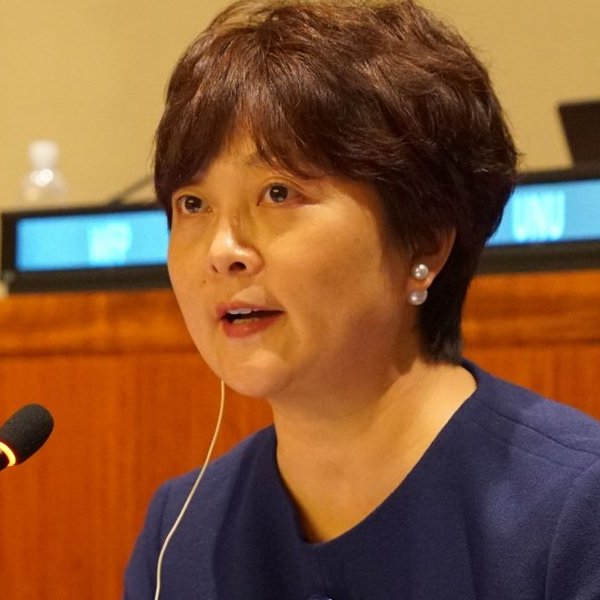 Acting Chief, GEIDCO North America Office
Acting Chief, GEIDCO North America OfficeMs. Mengrong Cheng Acting Chief, GEIDCO North America Office
Ms. Mengrong Cheng is graduated in English Literature by the Beijing Second Foreign Language institute and has a Master in Business Management in the Tsinghua University, Beijing, in China. Mrs. Mengrong Chen is member of the board of directors of REN-Redes Energéticas Nacionais, SGPS, S.A. From 2006 to 2011, Mrs. Mengrong Cheng Deputy General, Department of International Cooperation, State Grid Corporation of China. Currently, Mrs. Mengrong Cheng is member of IEC MSB Chinese Committee; Co-head of the Department of International Cooperation, and member of the Overseas Investment Management Committee, State Grid Corporation of China.
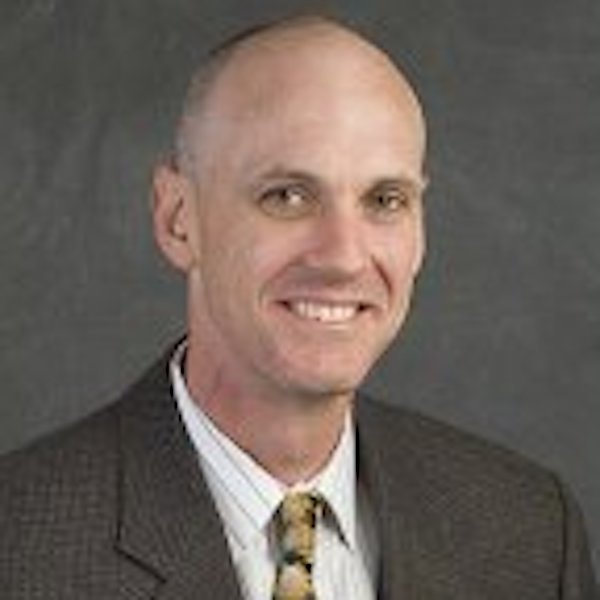 Senior Scientist, Pacific Northwest National Laboratory
Senior Scientist, Pacific Northwest National LaboratoryDr. Leon Clarke Senior Scientist, Pacific Northwest National Laboratory
Dr. Clarke is an expert in the cross-disciplinary analysis of issues relating to energy, technology, policy, and climate change. Dr. Clarke is currently a Senior Scientist and leads the Integrated Modeling and Energy Group at the Joint Global Change Research Institute (JGCRI), a collaboration between the University of Maryland and the Pacific Northwest National Laboratory (PNNL). Dr. Clarke’s current activities focus on the evolution of national and international energy and agricultural systems, energy technology deployment and technological advance, scenario analysis, international climate policy, and integrated assessment of climate impacts. Dr. Clarke has served in a range of national and international leadership roles, including coordinating lead author for the Intergovernmental Panel on Climate Change (IPCC), member of the National Academy Study on America’s Climate Choices, and coordinator of several multi-institution studies exploring energy, technology, policy, and climate change. Prior to joining PNNL, Dr. Clarke worked as a decision scientist at Lawrence Livermore National Laboratory, evaluated utility demand-side management programs at Pacific Gas & Electric Company, and worked in energy consulting. Dr. Clarke holds Ph.D. and M.S. degrees in Engineering Economic Systems and Operations Research from Stanford University and B.S. and M.S. degrees in Mechanical Engineering from U.C. Berkeley.
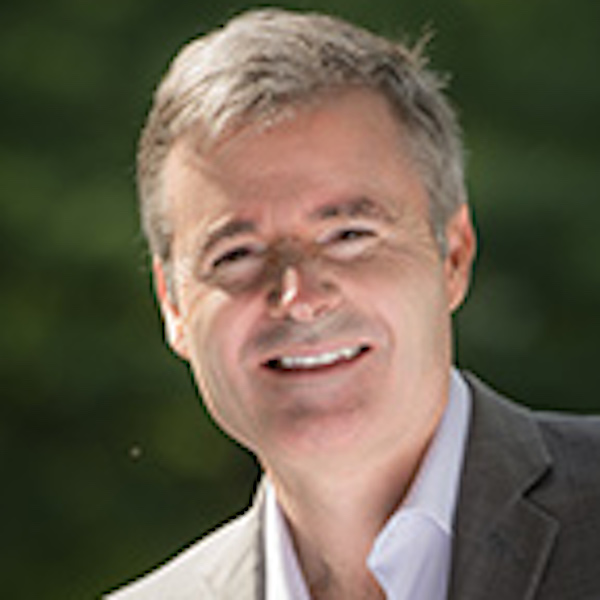 CEO, American Forests
CEO, American ForestsMr. Jad Daley CEO, American Forests
Jad joined American Forests in 2017 as VP of Conservation Programs and was named President and CEO in 2018 after a year of leading the organization forward on issues like climate change and social equity. From 2008 to early 2017, Jad launched the Climate Conservation Program at The Trust for Public Land and eventually served as Vice President for Program Development. Jad is a widely published writer on conservation topics, including an active presence on HuffPost, and has played a leading role in authoring and enacting federal legislation to establish forest programs such as the U.S. Forest Service Community Forest Program.
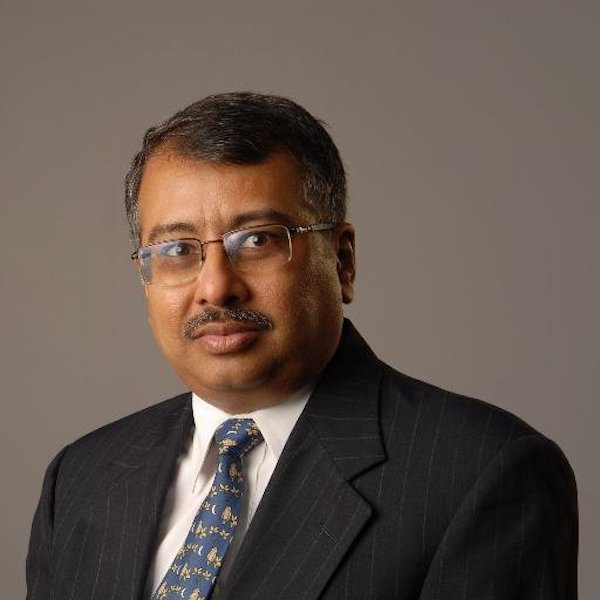 Chief Sustainability Officer, Mahindra Group
Chief Sustainability Officer, Mahindra GroupMr. Anirban Ghosh Chief Sustainability Officer, Mahindra Group
Anirban Ghosh is a gold medallist engineering graduate who has paved way for a sustainable future.
He is with the USD 17.8bn Mahindra Group, where he is currently Chief Sustainability Officer. This role involves leading the strategy and implementation of the Group’s sustainability drive. Anirban has held other key positions in the Group prior to his current role. He led the business strategy function in M&M’s Farm Equipment business and has also worked in the USA as President of Mahindra USA Inc. Before joining Mahindra Group, Anirban has worked in the Information Technology and Office Automation industries in Sales and Marketing roles. He has also served on the committees of several Industry Associations in India and in the USA, including being a member of the Board of the Association of Equipment Manufacturers, USA. He was recently appointed as Multi-Stakeholder Steering Committee (MSC) for GRI South Asia, SDG Agenda 2030.
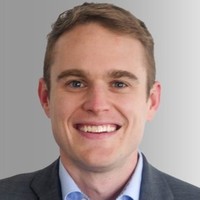 Co-Founder, Evolved Energy Research
Co-Founder, Evolved Energy ResearchMr. Ben Haley Co-Founder, Evolved Energy Research
Ben has unique experience developing energy system models to support energy transformation decision making. His models have been utilized by parties from the California state government to support 2030 greenhouse gas (GHG) target-setting and by the research team representing the United States in the Deep Decarbonization Pathways Project (DDPP) convened at the behest of the United Nations. He has a passion for problem-solving and a deep technical knowledge of energy, specifically in the growing interaction between electricity and other sectors of the energy economy. His education includes a masters in international environmental policy from the Middlebury Institute of International Studies and a bachelors degree in business administration from Bucknell University.
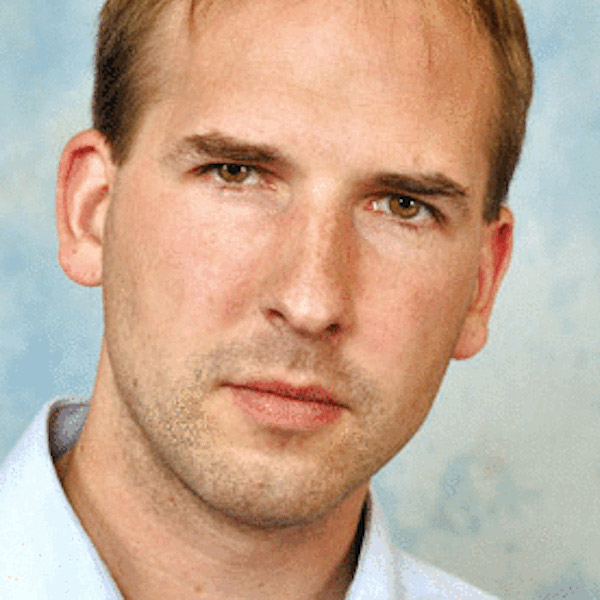 Deputy Program Director, International Institute for Applied Systems Analysis (IIASA)
Deputy Program Director, International Institute for Applied Systems Analysis (IIASA)Dr. Petr Havlik Deputy Program Director, International Institute for Applied Systems Analysis (IIASA)
Petr Havlik joined the Forestry Program as a Research Scholar in July 2007.
After studies in the Czech Republic and in France, Dr. Havlik received an M.Sc. degree in economics and management (2001), and in economics of agriculture, agri-business, and rural development (2002), from the Mendel University of Agriculture and Forestry in Brno (Czech Republic) and the University of Montpellier 1 (France), respectively. In his master’s thesis he analyzed positive environmental externalities arising from agriculture, first from the demand side, applying monetary valuation methods to agricultural landscapes, and then from the supply side, evaluating the production cost of these externalities by means of mathematical programming farm-level models.
Dr. Havlik pursued the analysis of environmental goods production by farmers also in his PhD thesis, under a double supervision at the University of Montpellier 1 and the Mendel University. Within his PhD thesis, he explicitly considered the jointness in production of environmental and agricultural goods, and the jointness between environmental goods themselves. By means of mathematical programming models, he analyzed implications of jointness for agri-environmental policy design, with special attention to uncertainty. He defended his thesis and received a PhD degree in 2006.
Before joining IIASA, Dr. Havlik shortly worked as a post-doc at INRA Grignon (France), where he set up a spatially explicit optimization model for the design of biodiversity compatible landscape pattern policies. Dr. Havlik’s current research interests include the use and development of forest and agricultural sector optimization models at the European and global level.
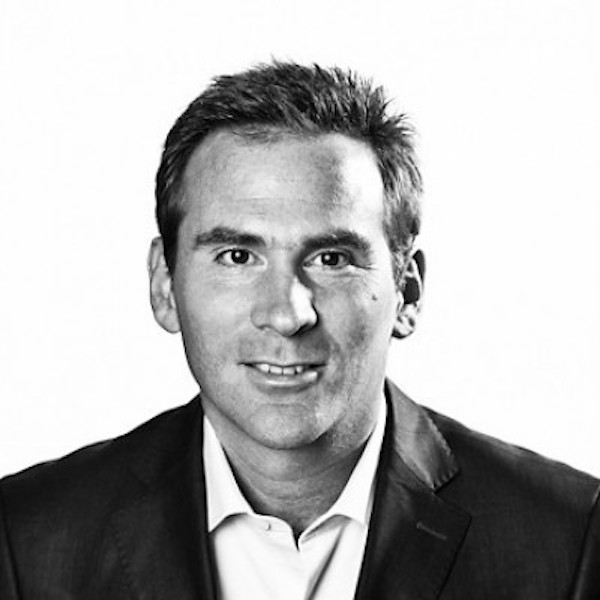 CEO, South Pole
CEO, South PoleMr. Renat Heuberger CEO, South Pole
Renat is a pioneer and social entrepreneur in the field of sustainability, climate change and renewable energies, where he is engaged since 1999. As a founding partner and CEO of the South Pole Group, he coordinated the set-up of the company’s global sustainability solutions business. Before founding South Pole, Renat was co-founder and CEO of the myclimate foundation, one of the world’s first players on the voluntary carbon markets.
Renat has been elected “Social Entrepreneur of Switzerland” by the World Economic Forum’s Schwab foundation, and he serves as a member of the Global Agenda Council on Climate Change of the WEF. He is a board member of Climate-KIC, Europe’s largest public-private innovation partnership focused on climate change, a board member of Climate Friendly Pty Ltd, Australia’s leading voluntary carbon company, and of Perenia Pty Ltd. He is a member of the advisory board of HUB Zurich, a platform for social entrepreneurship and MyNewEnergy, a company launching the first-ever platform to compare power products in Switzerland.
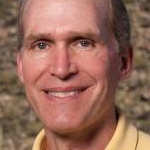 Senior Fellow, Stanford Woods Institute; Professor, Stanford University
Senior Fellow, Stanford Woods Institute; Professor, Stanford UniversityDr. Robert Jackson Senior Fellow, Stanford Woods Institute; Professor, Stanford University
Robert B. Jackson is Michelle and Kevin Douglas Provostial Professor and chair of the department of Earth System Science in the School of Earth, Energy & Environmental Sciences. He studies how people affect the earth, including research on the global carbon and water cycles, biosphere/atmosphere interactions, energy use, and climate change.
Jackson’s team published the first studies examining fracking and drinking water quality and, with colleagues, mapped thousands of natural gas leaks across cities such as Boston and Washington, D.C. He is also examining the effects of climate change and droughts on forest mortality and ecosystems.
Jackson has received numerous awards. He is a Fellow in the American Geophysical Union and the Ecological Society of America and was honored at the White House with a Presidential Early Career Award in Science and Engineering. In recent years, he directed the DOE National Institute for Climate Change Research for the southeastern U.S., co-chaired the U.S. Carbon Cycle Science Plan, and is currently CHAIR of the Global Carbon Project (www.globalcarbonproject.org).
An author and photographer, Rob has published a trade book about the environment (The Earth Remains Forever, University of Texas Press) and two books of children’s poems, Animal Mischief and Weekend Mischief (Highlights Magazine and Boyds Mills Press). His photographs have appeared in many media outlets, including the NY Times, Washington Post, USA Today, US News and World Report, Nature, and National Geographic.
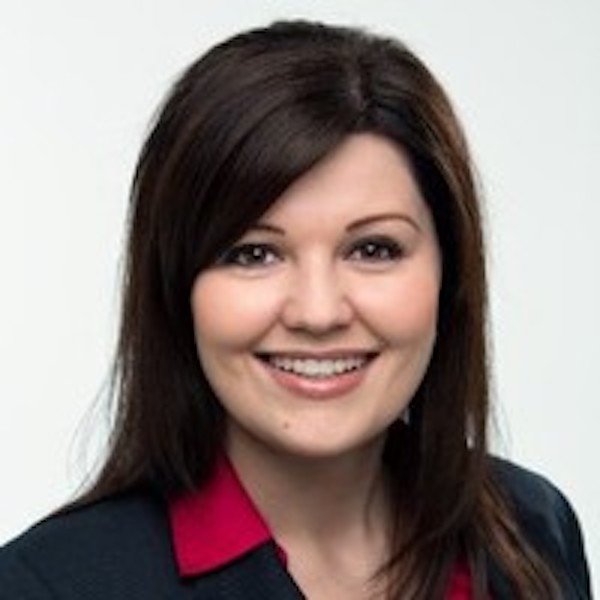 Vice President, Sustainability and Stakeholder Relations, Nutrien
Vice President, Sustainability and Stakeholder Relations, NutrienMs. Candace Laing Vice President, Sustainability and Stakeholder Relations, Nutrien
Candace Laing is a skilled resource in the development of strategic business initiatives that create high performance cultures and help organizations achieve business results. Candace is currently the Vice President of Sustainability and Stakeholder Relations at Nutrien – the world’s largest provider of crop inputs and services. Her career has spanned both private and public-sector organizations and she has served as an instructor at the University of Saskatchewan in the Edwards School of Business. Through the University of Saskatchewan, Candace obtained a Bachelor of Commerce and she has completed a Master of Arts in Leadership from Royal Roads University. People describe Candace as highly personable, competitive and always energized by challenge. She is passionate about agriculture and is proud to have grown up in Saskatchewan which is where she currently lives and where her family still farms.
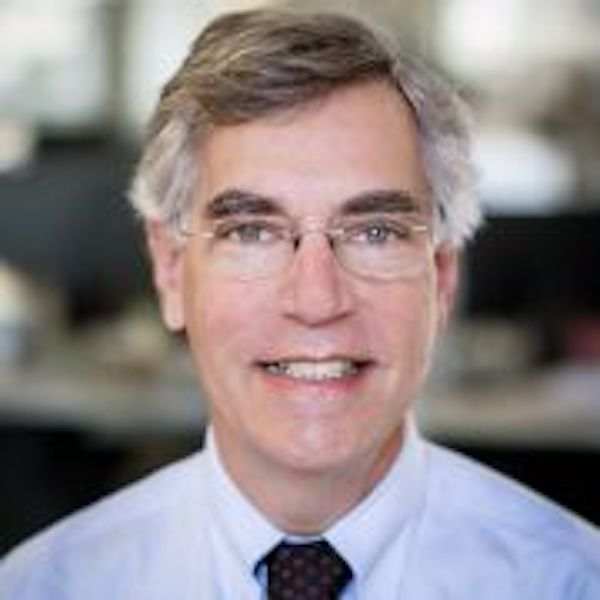 US Director, World Resources Institute
US Director, World Resources InstituteDr. Dan Lashof US Director, World Resources Institute
Dan Lashof is the Director of World Resources Institute, United States. He coordinates WRI’s work in the United States across climate, energy, food, forests, water and the sustainable cities programs. This includes overseeing the work of the U.S. climate team, which aims to catalyze and support climate action by states, cities, and businesses while laying the groundwork for federal action in the coming years.
Dan has been working to promote solutions to climate change for more than two decades. Before the World Resources Institute, Dan was the Chief Operating Officer of NextGen Policy Center and previously served as the Director of the Climate and Clean Air Program at the Natural Resources Defense Council.
His focus is developing federal and state regulations to place enforceable limits on carbon dioxide and other heat-trapping pollutants. He has participated in scientific assessments of global warming through the Intergovernmental Panel on Climate Change and has monitored international climate negotiations since their inception. He was a member of Governor McAuliffe’s Climate Change and Resiliency Update Commission, and has testified at numerous Congressional and California legislative hearings.
Dan earned his Bachelor’s degree in Physics and Mathematics at Harvard and his Doctorate from the Energy and Resources Group at the University of California, Berkeley.
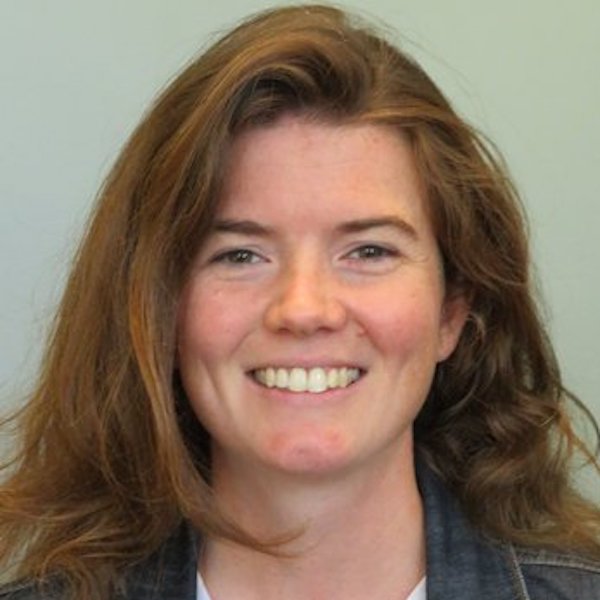 Ph.D. Student, UC Davis
Ph.D. Student, UC DavisMs. Emily McGlynn Ph.D. Student, UC Davis
Emily is an expert on climate, energy, and environmental policy, focusing on land use and land management issues. Currently a PhD NSF Graduate Fellow in the University of California Davis’ Agriculture and Resource Economics department, Emily previously served as Deputy Associate Director for Energy and Climate Change in the Obama White House. In this capacity she was a lead author of the U.S. Mid-Century Strategy for Deep Decarbonization. Emily also served as Senior Adviser to the Special Envoy for Climate Change Todd Stern at the U.S. Department of State, leading on high priority international initiatives to reduce greenhouse gas emissions, including bilateral cooperation with China. Emily has supported investment in environmental markets as Director for Strategy and Policy at The Earth Partners, a company identifying private sector solutions to land restoration. As a German Foreign Ministry-supported Transatlantic Fellow at the Technische Universitaet Berlin and Ecologic Institute, Emily developed climate and environmental policy recommendations for the European Commission and other public and private sector stakeholders. She has a background in biology and economics from Bryn Mawr College.
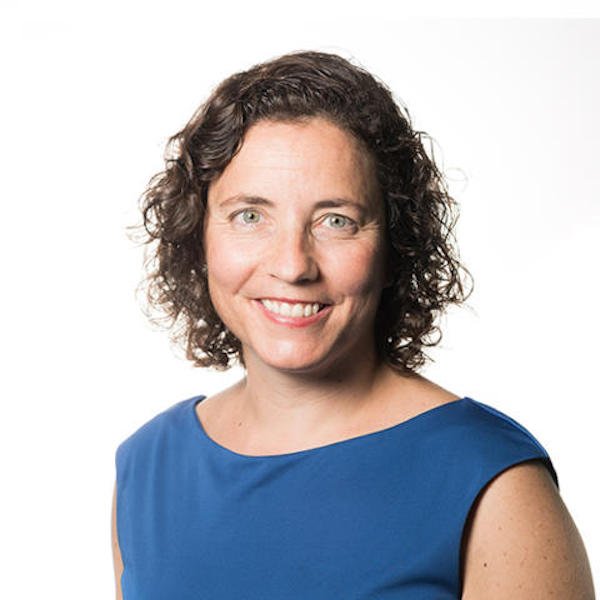 Managing Director, World Business Council for Sustainable Development (WBCSD)
Managing Director, World Business Council for Sustainable Development (WBCSD)Dr. Maria Mendiluce Managing Director, World Business Council for Sustainable Development (WBCSD)
Dr. María Mendiluce has over 20 years’ experience in the energy and climate area. Since 2008, María has led the implementation of WBCSD’s Climate and Energy strategy, guiding the work of over 200 member companies to influence the global climate landscape. María managed the development of the Low Carbon Technology Partnerships initiative, one of the flagship projects leading up to the success of COP21. She created WBCSD’s new program on circular economy, and is now developing the new strategy for transport and cities. Prior to joining WBCSD, Maria held different roles at the International Energy Agency (Paris), Iberdrola and the Economic Bureau of the Spanish Prime Minister (Spain). María teaches at the University of Geneva, coaches students and is recognized for her contributions to scientific journals and international conferences. She is married and has three kids.
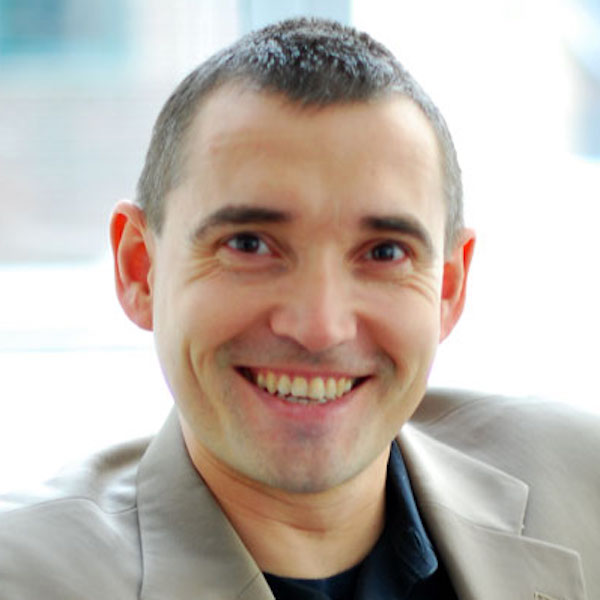 Founder & CEO, Emotorwerks
Founder & CEO, EmotorwerksMr. Valery Miftakhov Founder & CEO, Emotorwerks
Valery Miftakhov is the Founder of Electric Motor Werks, a California Group focused on promoting high performance electric conversions. He has started Electric Motor Werks to help dramatically accelerate adoption of electric car conversions and raise the image of the affordable electric car solutions.
Over the last 10 years, Valery held a number of executive business strategy positions in various high-tech and management consulting companies, including Google, Nielsen, and McKinsey & Company.
Valery received his PhD in Physics from Princeton University and his M.S. in Physics from Moscow Institute of Physics and Technology. He was a two-time winner of the Nationwide Russian Physics Competitions.
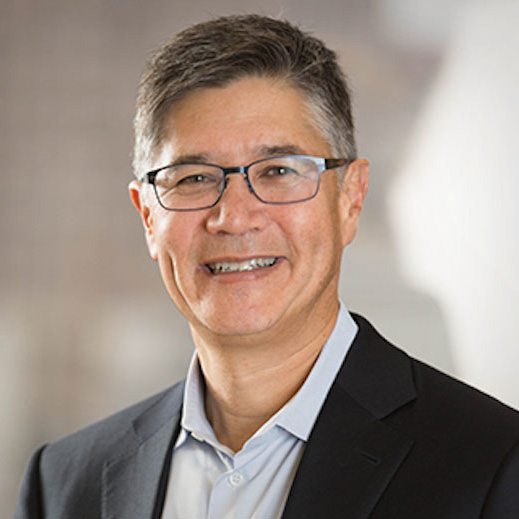 Managing Partner, Energy and Environmental Economics
Managing Partner, Energy and Environmental EconomicsDr. Ren Orans Managing Partner, Energy and Environmental Economics
Dr. Ren Orans founded E3 in 1989. An economist and engineer, he has focused throughout his career on the most pressing challenges facing the electricity industry. Most recently his major focus has been on advising California’s regulators and stakeholders on the most effective ways to implement the state’s clean energy and greenhouse gas mitigation policies.
Ren began his career by demonstrating the potential of deploying distributed energy resources to defer infrastructure investments, saving costs and enabling the integration of renewables into the grid. During the restructuring era of the 1990s, he devised a rate-making mechanism that enabled Texas utilities to recover stranded costs while giving retail customers access to wholesale market prices. He also supported the opening of transmission markets by developing FERC-compliant tariffs for Canadian utilities and assisting the California ISO in developing tariffs and evaluation processes for transmission projects.
Ren is a longtime advisor to policy makers and executives in every corner of the electricity arena: government agencies, utilities, system operators, regulators, independent power producers, energy technology companies, public interest organizations, and investors. He has also published his work widely in top scholarly journals and served as an expert witness on numerous occasions.
Even after 25-plus years of analyzing the industry, Ren still finds the electricity sector fascinating. He’s particularly excited by the accelerating pace of change, which technological innovation and public policy are driving. He enjoys applying E3’s deep analytic models and years of experience to new challenges and new markets.
Education: PhD, civil engineering, Stanford University; BA, economics, University of California, Berkeley
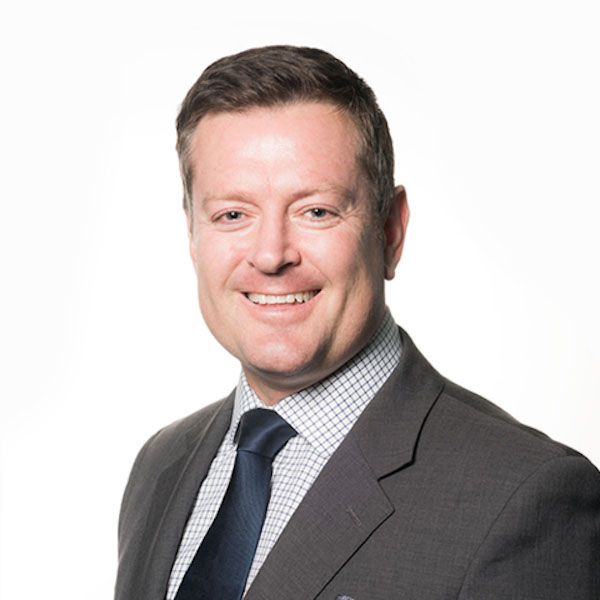 Mr. Matthew ReddyDirector of Climate Smart Agriculture, World Business Council for Sustainable Development (WBCSD)
Mr. Matthew ReddyDirector of Climate Smart Agriculture, World Business Council for Sustainable Development (WBCSD)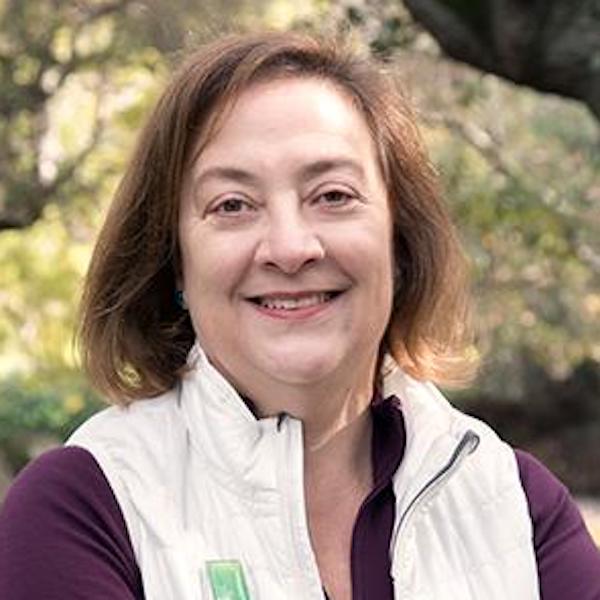 President and Chief Executive Officer, The Trust for Public Lands
President and Chief Executive Officer, The Trust for Public LandsDiane Regas President and Chief Executive Officer, The Trust for Public Lands
An internationally recognized conservation leader, Diane Regas joined The Trust for Public Land in the spring of 2018 as president and CEO. Prior to The Trust for Public Land, Diane worked for more than a decade at Environmental Defense Fund (EDF), most recently as executive director, where she helped EDF advance solutions that promote prosperity for all people and for the planet. She guided work to improve ocean health, stabilize the climate, reduce toxins in everyday products, and promote collaboration and partnerships. Prior to EDF, Diane served at the U.S. Environmental Protection Agency, working under both Democratic and Republican administrations as the top civil servant protecting our nation’s rivers, lakes, and bays.
Diane earned her A.B., M.S. in energy and resources, and J.D. at the University of California, Berkeley, and resides in Berkeley, CA. An avid outdoor explorer, Diane enjoys hiking, cycling, diving, camping, and spending time in nature with her husband, children, and granddaughter.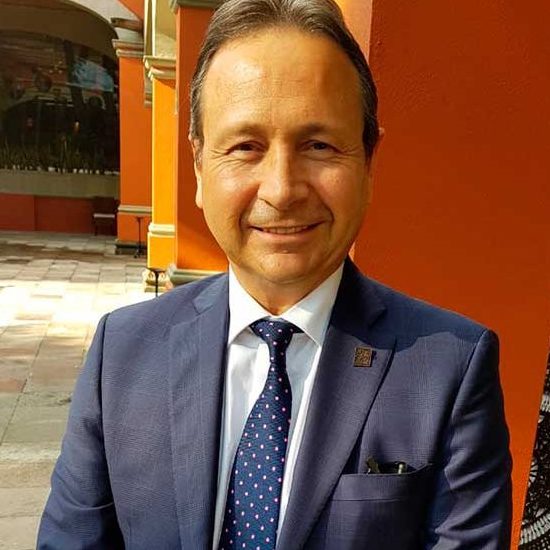 Executive Commissioner Sonora, Mexico
Executive Commissioner Sonora, MexicoLuis Carlos Romo Salazar Executive Commissioner Sonora, Mexico
Biochemical Engineer with a Masters in Business Administration by
Technological Institute of Monterrey (ITESM) with more than 30 years of experience in the food industry, banking and investment projects.Undersecretary of Fisheries and Aquaculture of the State of Sonora.
Vice-President of the National Chamber of Electronics Industry,
Telecommunications and Information Technologies in Sonora.Special Advisor of Senator Claudia Pavlovich Arellano during her period
as Secretary of the Fisheries and Aquaculture Commission.During his professional career he has specialized in innovation and
technology transfer, linking the scientific knowledge that exists in
research centers and universities with the private sector.He was appointed in September of 2015 by the State Constitutional
Governor as Executive Commissioner of the Commission of Ecology and
Sustainable Development of the State of Sonora.
 Global Sustainability Director, Rabobank
Global Sustainability Director, RabobankBas Ruter Global Sustainability Director, Rabobank
Bas Rüter is Director of Sustainability at Rabobank as of March 2012. He is responsible for the sustainability strategy, the sustainability policy framework, reporting and sustainable business development within Rabobank Group. As part of his function he is responsible for the partnerships with WWF, UN Environment including the 1 bln USD pledge for forest protection and sustainable agriculture, chair of the finance working group of the Climate Smart Agriculture program of the WBCSD, member of Rabobanks’ Ethics Committee, chairman of the supervisory Board of Dutch Greentech Fund and SHIFT Invest, chairman of the jury of the Herman Wijffels Innovation awards and supervisory board member of Rabo Groenbank. He is also member of the board of TKI Agri & Food an chairman of the Sustainability Platform of the Dutch Banking Association.
Before joining Rabobank he worked 17 years for Triodos Bank, during the last seven years as managing director of Triodos Investment Management.
Bas holds a Master of Science degree in biology of Wageningen University.
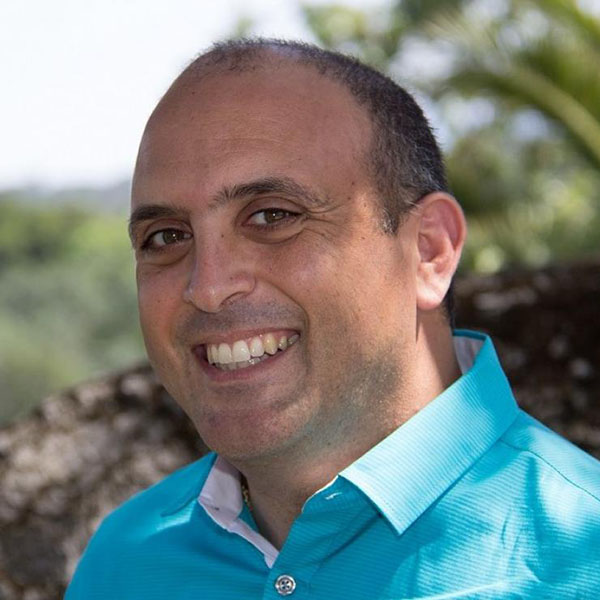 Associate Professor and Director of Geospatial Analysis Lab
Associate Professor and Director of Geospatial Analysis LabDr. David Saah Associate Professor and Director of Geospatial Analysis Lab
Dr. Saah has been broadly trained as an environmental scientist with expertise in a number of areas including: landscape ecology, ecosystem ecology, hydrology, geomorphology, ecosystem modeling, natural hazard modeling, remote sensing, geographic information systems (GIS) and geospatial analysis. He has used these skills to conduct research primarily at the landscape level in a variety of systems. Dr. Saah has participated in research projects throughout the United States and Internationally. His academic research uses integrated geospatial science for multi–scale mapping, monitoring and modeling of environmental spatial heterogeneity, particularly in riparian, savanna, and forest ecosystems. These efforts include quantification of change in landscape pattern, investigating the linkages between pattern and processes, and understanding the pattern–process dynamic within different environmental management regimes. To complement this, Dr. Saah’s consulting research interest and experience include: developing holistic decision support systems for resource management, assessing natural hazards, and quantifying ecosystem service valuation. In addition, all of his research addresses access, availability, and accuracy of geospatial and environmental datasets, and scale in natural resource and environmental research. Dr. Saah is committed to producing high quality research projects that integrate the most current science and technology. He is dedicated to the accurate dissemination of results from these endeavors through innovative presentations, publications, and workshops.
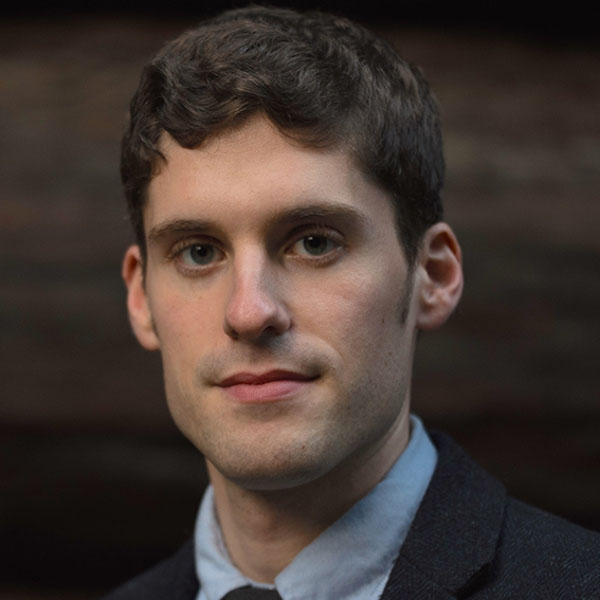 Assistant Specialist, Department of Environmental Science, Policy, and Management University of California-Berkeley
Assistant Specialist, Department of Environmental Science, Policy, and Management University of California-BerkeleyDr. Daniel L. Sanchez Assistant Specialist, Department of Environmental Science, Policy, and Management University of California-Berkeley
Daniel L. Sanchez is an engineer and energy systems analyst studying the commercialization and deployment of energy technologies that remove CO2 from the atmosphere. Sanchez’s work and engagement spans the academic, nongovernmental, and governmental sectors. As an Assistant Cooperative Extension Specialist, he runs the Carbon Removal Lab, which aims to commercialize sustainable negative emissions technologies, and supports outreach to policymakers and technologists in California and across the United States. Prior to joining the faculty of UC Berkeley, Daniel was a AAAS Congressional Science and Engineering Fellow serving in the Office of Senator Michael Bennet (D-CO). He has previously held positions with the Advanced Research Projects Agency-Energy, Green for All, and the California Public Utilities Commission. He holds a PhD and MS from UC Berkeley’s Energy and Resources Group, and a BSE in chemical and biomolecular engineering from the University of Pennsylvania.
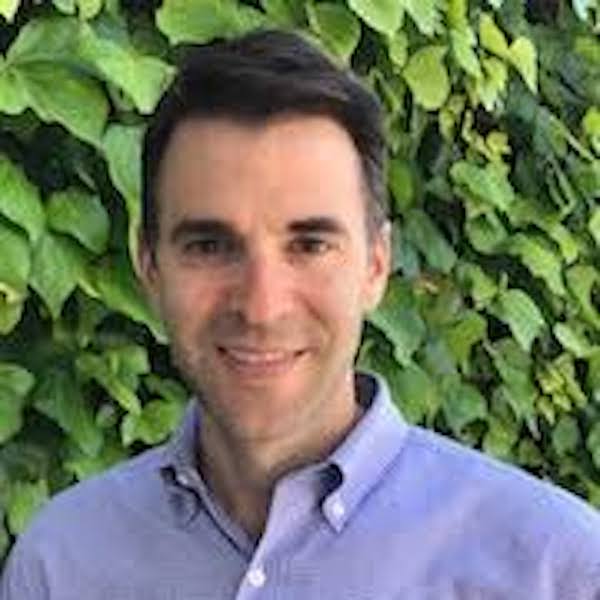 Vice President, Energy Market Operations for eMotorWerks
Vice President, Energy Market Operations for eMotorWerksMr. David Schlosberg Vice President, Energy Market Operations for eMotorWerks
David Schlosberg is VP of Energy Market Operations at eMotorWerks, an Enel Group Company, and leads its participation in energy markets and other programs operated by regulatory agencies. He also provides industry leadership on EVs and distributed energy resources in regulatory and legislative forums. Previously, he was Principal, Energy Market Analysis, within the Alphabet / Google Access & Energy division, where he was responsible for regulatory activities as well as related business development initiatives with utilities, energy management providers and renewable energy companies. Previously, David held regulatory and government affairs roles with BrightSource Energy, a provider of large scale solar thermal power plants. David received his BS in Economics from the University of Pennsylvania’s Wharton School of Business and an MBA from UC Berkeley’s Haas School of Business.
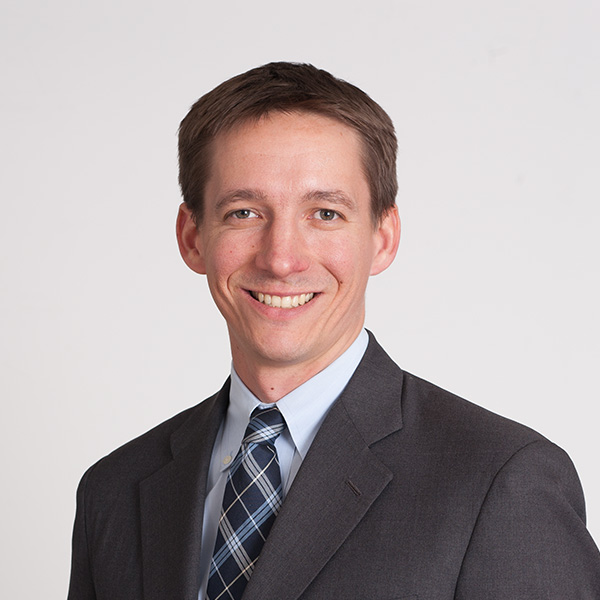 Executive Director, New Forests
Executive Director, New ForestsMr. Brian Shillinglaw Executive Director, New Forests
Brian Shillinglaw leads New Forests’ US timberland and environmental market investment strategies. Brian’s expertise includes real assets and environmental market fund management, with a focus on the use of conservation finance techniques in real assets investment. His academic background includes a bachelor’s degree in Social Studies from Harvard University, a JD from Stanford Law School, a Master of Science from the Interdisciplinary Program on Environment and Resources at Stanford University, and doctoral research in historical ecology at Yale University.
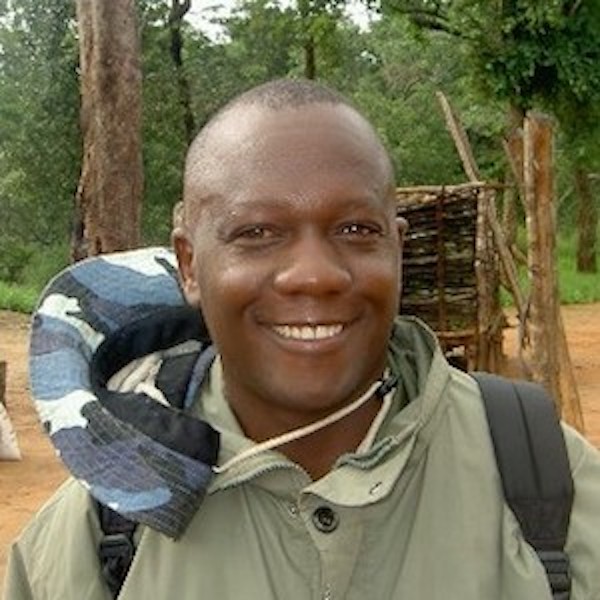 Executive Chairman, Foundation for Wildlife & Habitat Conservation
Executive Chairman, Foundation for Wildlife & Habitat ConservationMr. Hammerskjoeld Simwinga Executive Chairman, Foundation for Wildlife & Habitat Conservation
Hammarskjold Simwinga is a 2007 Goldman Environmental Prize Recipient, for having worked with communities in rural Zambia of north luangwa national park by providing and supporting alternative livelihood to over 3000 households. He is also a Times Magazine 2007 Environmental nominee. In 2008 he became a National Geographic Emerging Explore.
His work goes as far back as 1994, supporting communities in sustainable agriculture production, conducting conservation education to young rural pupils.
In the recent years he has dedicated his time trying to save over 5,080 hac. of pristine forest that is under threat due to increased timber poaching and increased land encroachment by commercial farm land developers.
He and the community through the support of the traditional leadership and the local council have managed to protect part of this important north luangwa ecosystem that which is part of the great two national wildlife parks,the north and South Luangwa national parks.
Visit Foundation for Wildlife and Habitat Conservation – Zambia for more information on Hammer’s work.
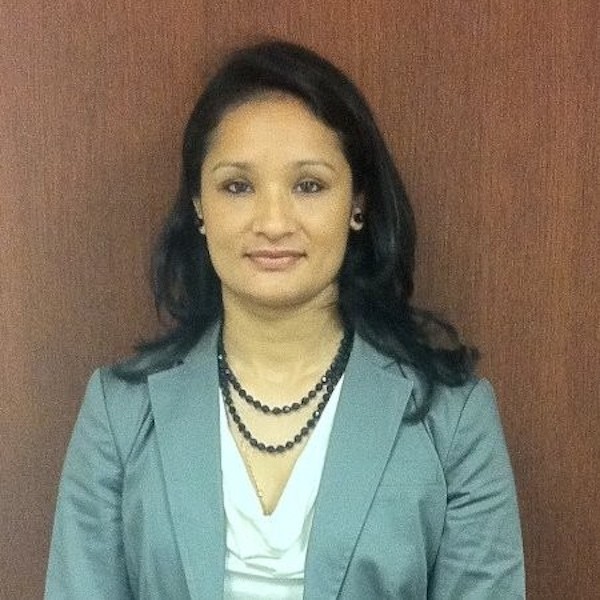 Director, Global Sustainability, PepsiCo
Director, Global Sustainability, PepsiCoMs. Noora Singh Director, Global Sustainability, PepsiCo
Skilled environmental professional with over eleven years of experience in the areas of sustainability strategy, resource management, climate change mitigation, supply chain sustainability, sustainable agriculture and waste management. Extensive experience in evaluating sustainability issue areas and uncovering opportunities for improvements that bring value to the business in the form of cost reduction, risk mitigation and enhancement of brand value. Seasoned in formulating the right strategy for tackling environmental issues with a focus on conducting stakeholder and supplier engagements and working within and beyond a company’s own operations; long term sustainability goal setting to goal implementation, progress tracking and evaluation of environmental impacts from various interventions. Well-versed in the areas of climate change mitigation and the carbon markets.
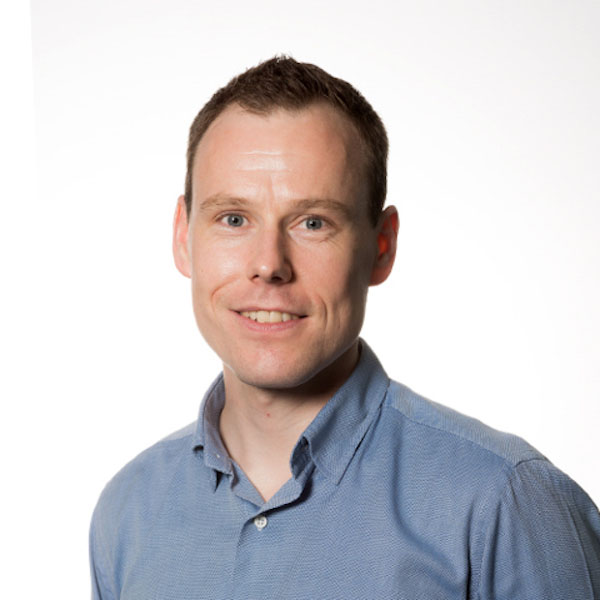 Director, Climate & Energy, World Business Council for Sustainable Development (WBCSD)
Director, Climate & Energy, World Business Council for Sustainable Development (WBCSD)Mr. Rasmus Valanko Director, Climate & Energy, World Business Council for Sustainable Development (WBCSD)
Rasmus Valanko is the Director for Climate & Energy with the Geneva-based World Business Council for Sustainable Development (WBCSD). In this role, he leads private sector cooperation aiming to create and scale-up business solutions to tackle climate change and leverage key global partnerships.
Rasmus has a Masters in Environment, Politics and Globalization from King’s College London. He began his career working for the Ministries of Foreign Affairs and Environment of Finland both in overseas development cooperation and multilateral environmental treaties. Prior to joining the WBCSD, Rasmus worked 7 years for Royal Dutch Shell on global climate change and CO2 policy as well as their alternative energies strategy.
Given his background, Rasmus has deep knowledge in the critical technologies required for the transformation of energy supply and demand, with the ability to facilitate and translate between technical and policy worlds.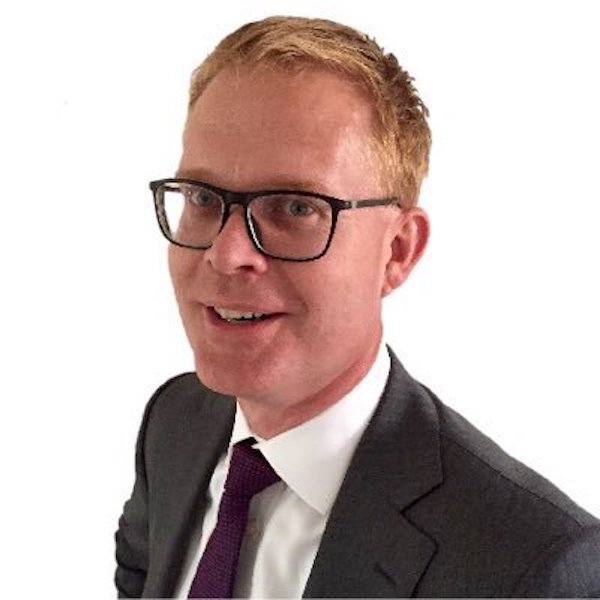 Director Environmental Management, Port of Rotterdam
Director Environmental Management, Port of RotterdamMr. Eric van der Schans Director Environmental Management, Port of Rotterdam
Eric van der Schans is Director Environmental Management at the Port of Rotterdam Authority since 1 September 2015.
Born in Enschede, the Netherlands in 1971, Eric holds a master degree in chemical engineering from the University of Twente.
He started his career at Stork in in 1996 as environmental & safety consultant for the Oil & Gas industry and worked on various projects in Europe and the Middle East. In 2000 he joined Royal Haskoning DHV and continued to work as consultant, project manager and team leader. In 2005 he joined Antea Group to lead their safety consultancy practice. In later years he has been responsible for international acquisition strategy of Antea Group as well as international business development.
As director Environmental Management he is responsible for spatial planning, environment and CSR within the Port of Rotterdam Authority.
In addition to his role with the Port of Rotterdam Authority, Eric van der Schans is Chairman of Environmental Shipping Index (ESI) Working Group.
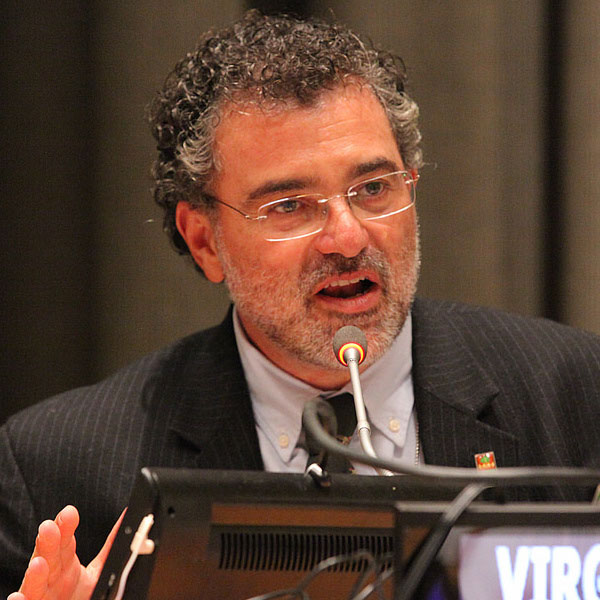 Director General, Amazonas Sustainable Foundation
Director General, Amazonas Sustainable FoundationDr. Virgilio Viana Director General, Amazonas Sustainable Foundation
Virgilio Viana is an expert in forestry and sustainable development. He received a PhD in evolutionary biology from Harvard University and did post-doctoral work on sustainable development at the University of Florida. He was formerly professor of forest sciences at the Higher School of Agriculture Luiz de Queiroz, at São Paulo University. Dr. Viana coordinated the Brazilian consultative process that led to the establishment of the Forest Stewardship Council (FSC) in 1993.
He was the founder and President of IMAFLORA, the first Latin-American-based forest certifier, and in 2003 he became the first Secretary of Environment and Sustainable Development for the state of Amazonas, Brazil, which had the mission of coordinating the state’s sustainable development program, known as the Green Free Trade Zone. In 2008, Dr. Viana transitioned to a new role as Director General of the Amazonas Sustainable Foundation (FAS), an organization charged with implementing the Bolsa Floresta Program, as well as providing the institutional framework to market environmental services of Amazonas’ forests.
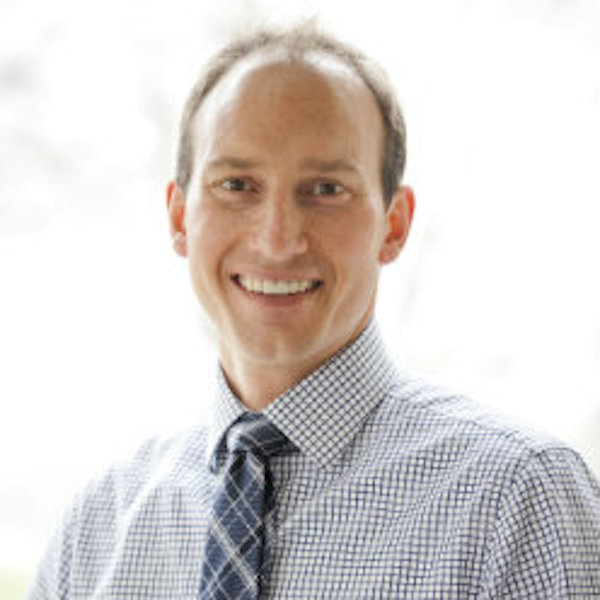 Deputy Secretary, Vermont Agency of Natural Resources
Deputy Secretary, Vermont Agency of Natural ResourcesMr. Peter Walke Deputy Secretary, Vermont Agency of Natural Resources
Peter Walke is the Deputy Secretary of the Vermont Agency of Natural Resources. Appointed to the position in January 2017 by Governor Phil Scott, Walke has been selected to co-chair the Vermont Climate Action Commission and to represent Vermont on the Regional Greenhouse Gas Initiative, the first mandatory market-based program in the US to cap greenhouse gas emissions from the power sector. Walke coordinates efforts to provide clean drinking water for Vermont residents effected by PFOA contamination, an industrial, chemical legacy, and he sits on ANR’s Leadership and Management Committee which provides a rigorous, high-quality avenue for Agency staff to advance their leadership skills.
Raised in Vermont, Walke pursued higher education first in Massachusetts, receiving a Bachelor of Arts (cum laude) from Williams College, and later a Master of Arts in Applied Geography from the University of Colorado at Colorado Springs. Following receipt of his undergraduate degree, Walke joined the Navy, serving for nine years as an intelligence officer. During his time in the armed services he was stationed in Florida, Virginia, England, and Colorado and was deployed twice in support of counterterrorism operations in Iraq and Afghanistan.
After resigning his commission, Walke was selected to join a leadership development fellowship serving the Governor of the State of New York. He quickly became one of the Governor’s primary environmental advisors and was named to the post of Chief of Staff of the New York Department of Environmental Conservation. After more than two decades living in other states and abroad, Walke was excited to return to his hometown of Montpelier, Vermont to continue his pursuit of excellence in environmental leadership at the Agency of Natural Resources.
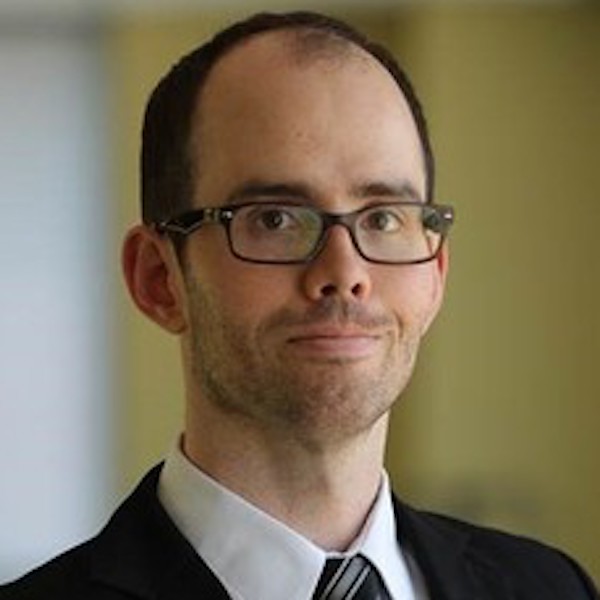 Global Climate & Energy Lead Scientist, WWF Global Science
Global Climate & Energy Lead Scientist, WWF Global ScienceDr. Chris Weber Global Climate & Energy Lead Scientist, WWF Global Science
Chris came to WWF from 2° Investing Initiative, where he led analysis and methodology development on climate-related risk and opportunities in investment portfolios. Prior to 2° Investing Initiative, he served as Senior Research Associate at the World Resources Institute, as a consultant to the UNEP Finance Initiative, and consulted on corporate sustainability for several Fortune 500 companies for Enviance, Inc. Earlier in his career Dr. Weber served as research professor at Carnegie Mellon University and as research staff member at the Science and Technology Policy Institute in Washington, DC, where he advised the White House Office of Science and Technology Policy on climate, energy, environmental and innovation policy issues. Chris holds an M.S. in civil & environmental engineering and a Ph.D. in civil & environmental engineering and engineering and public policy from Carnegie Mellon University. Chris is based in Washington, DC.
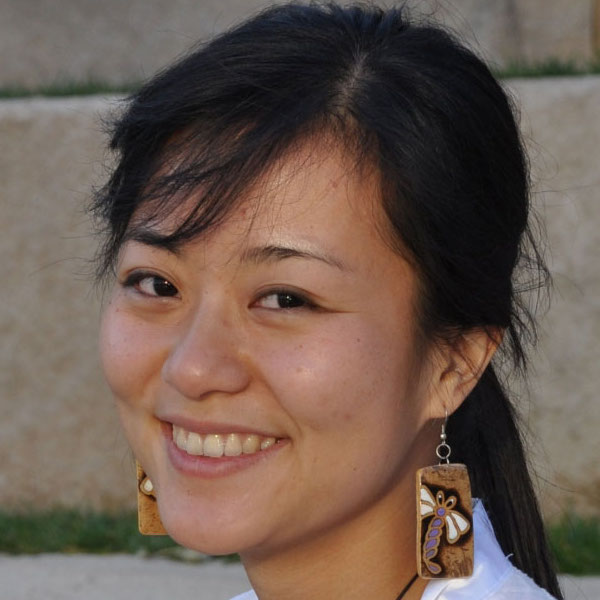 Smith Conservation Fellow, UC Davis
Smith Conservation Fellow, UC DavisDr. Grace Wu Smith Conservation Fellow, UC Davis
I am currently a UC President’s Postdoctoral Fellow at UC Davis in the CSTARS lab working with Dr. Susan Ustin.
I am an environmental scientist studying land use for energy and conservation needs. My research seeks to understand the impact of energy infrastructure on land use and conservation, and to develop practical strategies for avoiding negative impacts. I am broadly interested in the dynamics and drivers of land use change, land use policy, and advancing our ability to plan for sustainable, multi-use landscapes that protect biological diversity. As the study of land use is deeply interdisciplinary, I combine methods from landscape ecology, energy economics and engineering, remote sensing, and spatial science in my research. Through collaboration with The Nature Conservancy, I have developed a spatial model to understand land-use constraints in meeting ambitious renewable energy targets in California, which led to regulatory improvements that simultaneously advance conservation and climate goals. I co-founded the Multi-criteria Analysis for Planning Renewable Energy (MapRE) initiative, which seeks to enable and improve the planning of low-carbon, cost-effective, socially and environmentally responsible energy systems through the development of decision support tools. Previously, I worked at the U.S. Geological Survey (USGS) and University of Notre Dame leading a project to understand climate change impacts on an endangered butterfly in the Great Lakes region. I graduated with a BA in Biology from Pomona College, a MPhil in Evolutionary Biology from University of Cambridge, and an MS and PhD in Energy and Resources from UC Berkeley.